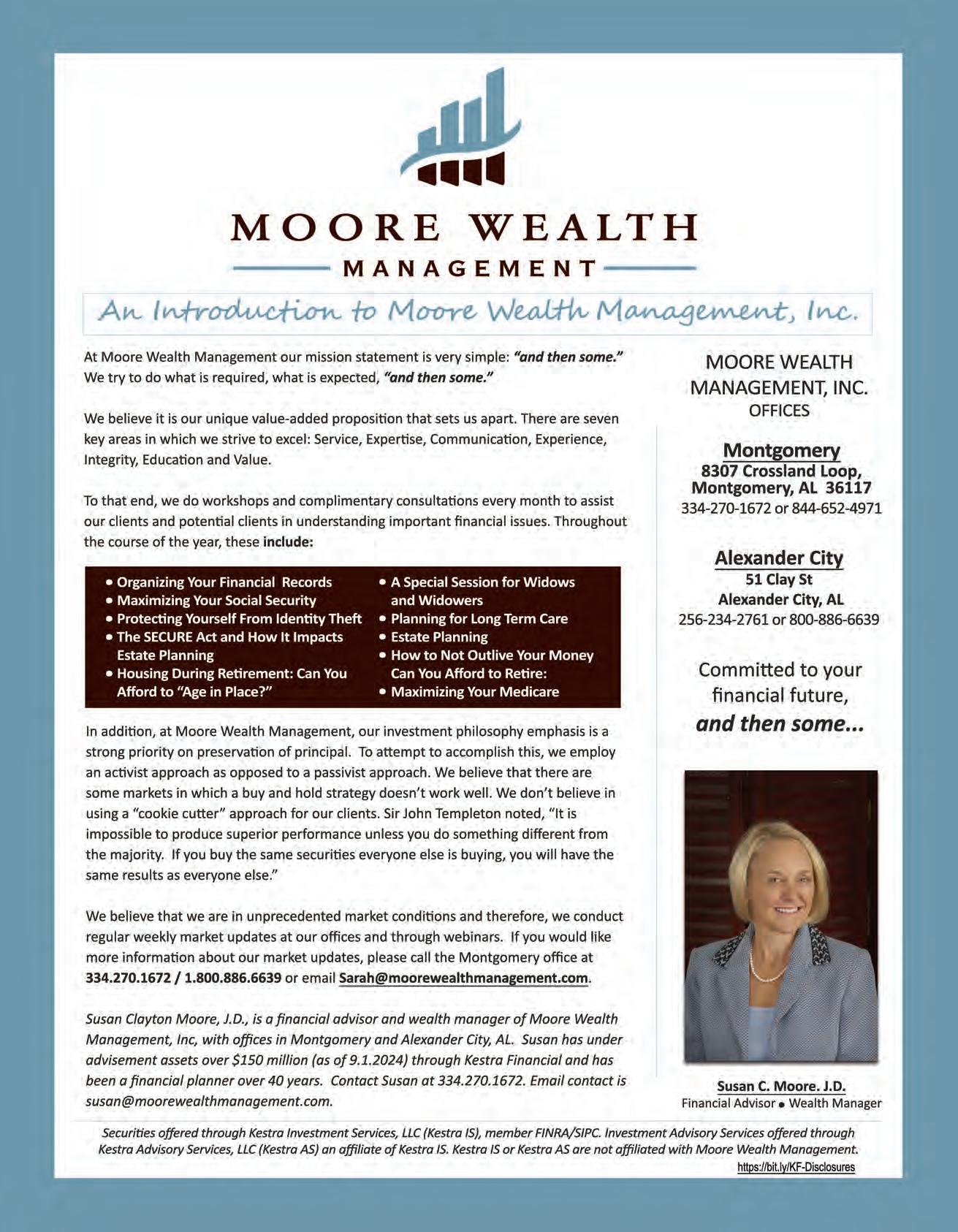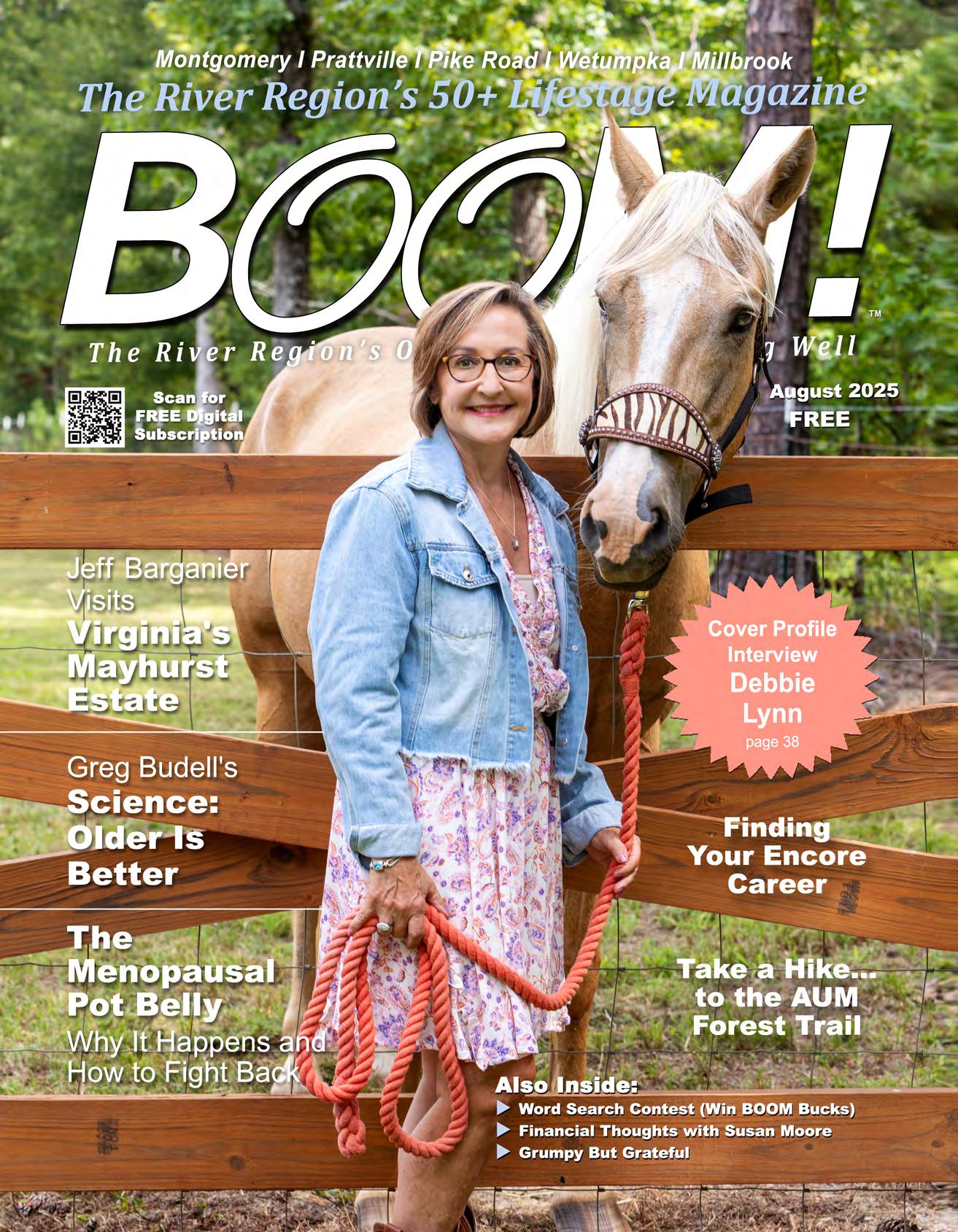
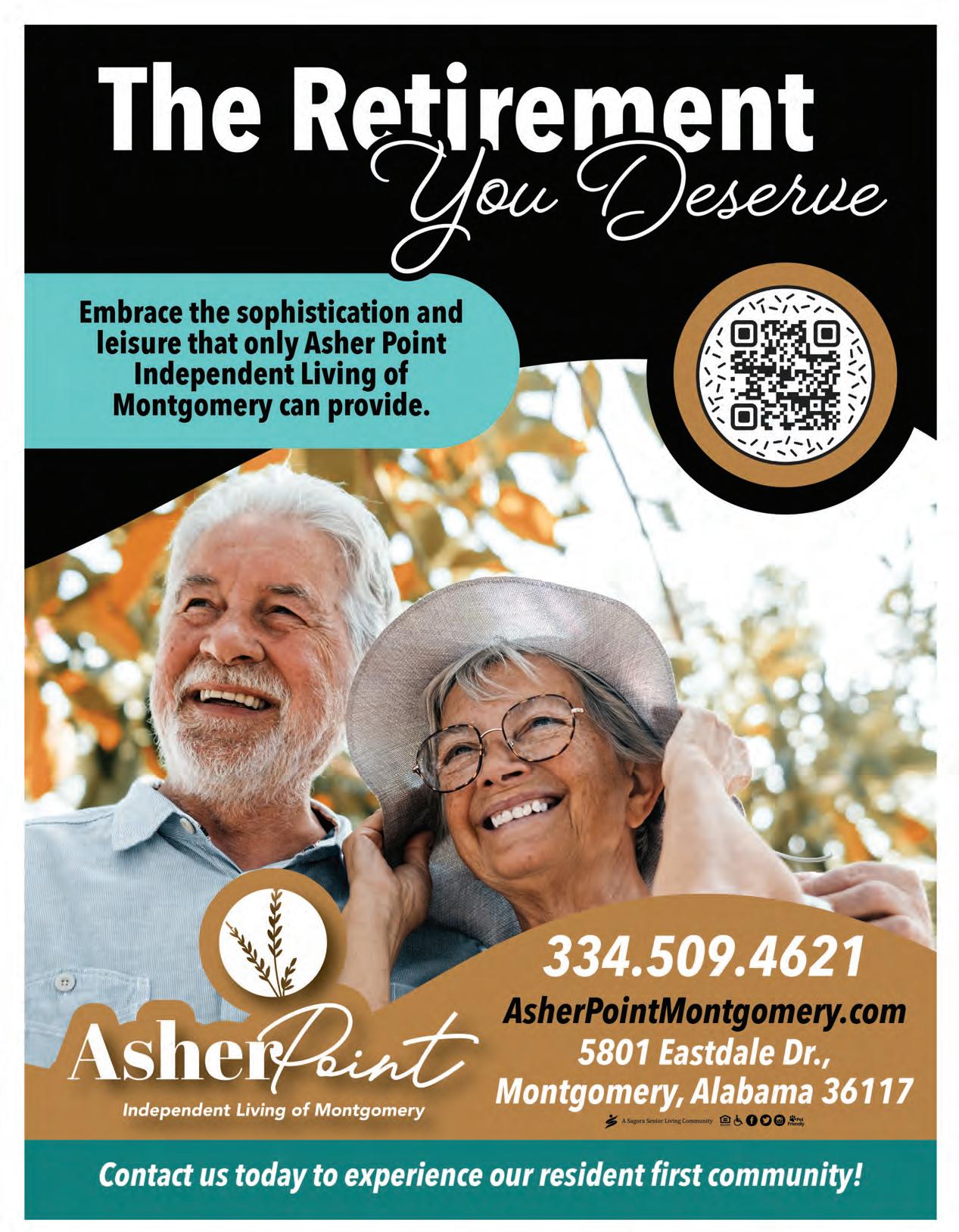








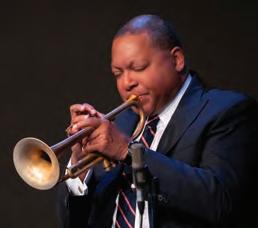
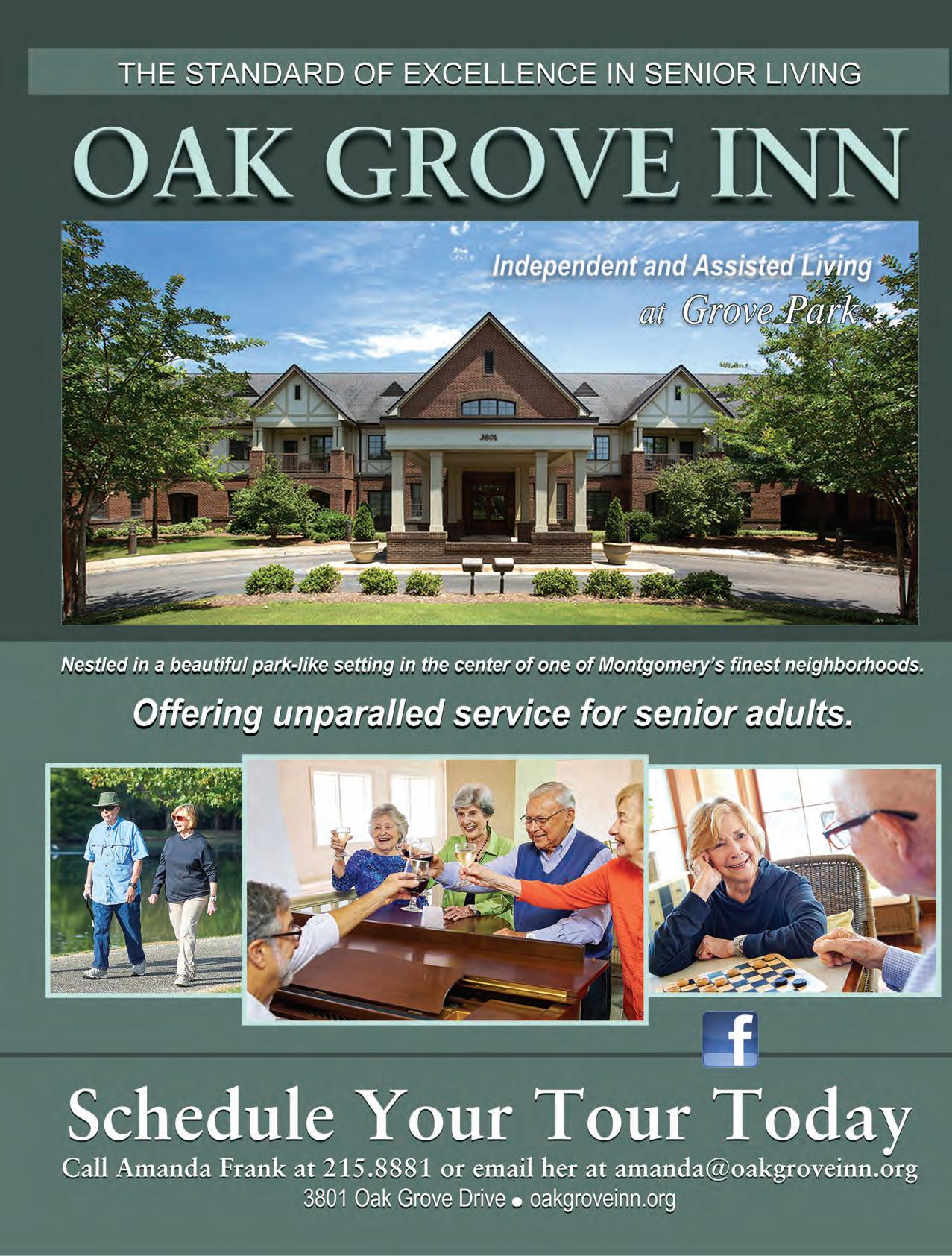



















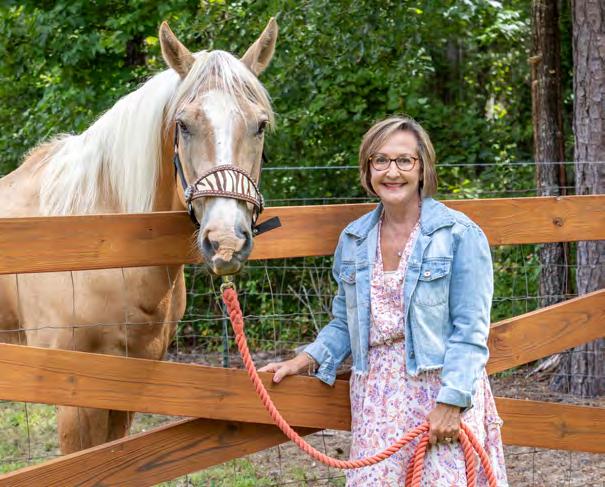







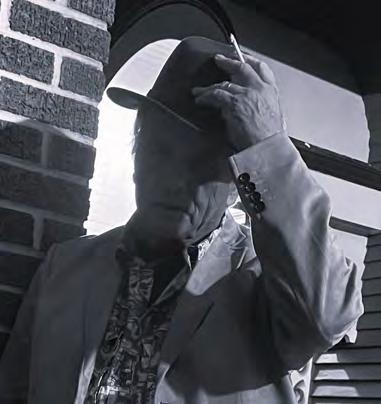

Dinner Recipe: Easy Summer Skillet Pasta
Grumpy But Grateful
Event: River Region Lobster Fest
Event: Devon Allman Blues Summit
Event: Wetumpka's Annual Wine Pull
Event: Hog Days of Summer
Event: Caregiver of the Month
Event: Return of Elvis and Company
Event: Midway Barn Bazarre
Event: 2025 Buckmasters Expo
Event: Montgomery Arts, Beats and Eats
Event: Magic of Motown
Word Search Contest
Moore Wealth Management

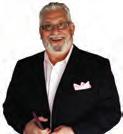
Founder Jim Watson (1950-2024)
Publisher Jason Watson 334.328.5189 cell/text jason@riverregionboom.com
Editor DeAnne Watson 334.462.0225 cell/text
Contributing Writers
Jeff Barganier
Greg Budell
Susan Moore
Nick Thomas
Melissa Watts
Cover Photography
Photography by DiAnna Paulk photographybydiannapaulk.com
Advertising
Jason Watson, 334.328.5189 jason@riverregionboom.com



It’s August in the River Region—hot enough to fry an egg on the sidewalk and just humid enough to steam it. But while summer's heat lingers, something shifts this month. You can feel it in the morning air, just a hint of what’s coming. Fall is whispering. Routines are resetting. And whether or not we’ve got kids in school ourselves, we all feel the pull of a fresh season approaching.
For many of us in the 50+ crowd, August means the grandkids are heading back to school. The house gets quieter. The fridge stays fuller. And we exhale—grateful for the memories we made this summer, and maybe a little relieved to get back to normal.
This month’s issue honors that unique space we’re in—the bridge between the energy of summer and the reflection of fall. Our cover profile, Debbie Lynn, embodies that beautifully. Her story is rooted in the independence of a childhood spent on a Pike Road farm, but it blooms with purpose: in her leadership at Easterseals, her commitment to health and wellness, and her deep love for her daughter. Debbie reminds us that aging with purpose doesn’t mean slowing down. It means showing up—with intention, curiosity, and heart.
You’ll also find an encouraging piece on how grandparents can play a meaningful role during back-to-school season—not just as babysitters or backup drivers, but as emotional anchors for the whole family. Sometimes a quick “You’ve got this” text from Grandma does more than we realize.
Greg Budell brings the laughs and the science with “Older is Better,” reminding us that mental strength, emotional resilience, and yes—even our sex lives—can actually improve with age. As Greg says, it might take all night to do what we used to do all night, but who's in a hurry these days?
We’ve also got a serious but essential look at the rise in scams targeting older adults. It’s sobering—but knowledge is power, and staying informed helps us protect ourselves and those we love.
If you’re itching for a little adventure before summer fades, Jeff Barganier takes us to Mayhurst Estate in Virginia, where faith, history, and hospitality intersect in a way that might just inspire your next road trip. Or, if you prefer something closer to home, Nick Thomas invites us to explore the AUM Forest Trail, right here in Montgomery—a hidden gem for reflection, walking, and rediscovery.
In this season of transition, maybe that’s the word we all need: rediscovery. Of who we are now. Of what still brings us joy. Of how to love better, move more, and stay curious in the years ahead.
Stay cool. Stay safe. And as always, Age Well—



“Planning For Your Future (Part 2)” (June 2025 BOOM Magazine) focused on assets transferring automatically and transferring your assets through a revocable living trust.
Assets pass outside your will if you have beneficiaries or joint owners listed on assets such as financial accounts and insurance policies. Real property may pass outside your will if you jointly own the property with right of survivorship and you are the first to die. Assets may also pass outside your will if you have a living trust. Everyone should have a will, but the extent it is utilized differs based on your estate planning. A will can control distribution of your assets after death and requires a court process to probate your will. A will avoids intestacy. Intestacy occurs when one dies without a will and no trusts or automatic transfers exist to direct all their assets. In those instances state law directs the distribution of the assets to surviving relatives in a specific order of inheritance.
• Appoint an Executor(s) and a successor Executor(s), who will manage and distribute the deceased person’s assets according to instructions in their will;
• Direct distribution of specific assets such as real property if you are the last to die on a survivorship deed or have ownership in property with no survivorship title;
• Direct distribution of specific items such as money and personal items such as jewelry, furniture, keepsakes, etc.;
• Name a guardian for minor children;
• Name a trustee for minors or special needs; and/or
• Disinherit individuals.
A few of the most utilized Wills are described below:
A simple will is probably the most common type of will. A simple will directs the
distribution of assets in the manner you wish after your death. To make a valid will in Alabama, you (testator) must be at least 18 years of age and of sound mind. You must sign your simple will before two competent witnesses. To be a selfproving will, your signature as well as the signatures of the two witnesses must be notarized.
This type of will allows you to manage and distribute your wealth after death by creating a trust within your will but the trust will not go into effect until the will is probated. The testamentary trust allows you to manage when assets are distributed to your beneficiaries. A Testator may set age limits for a beneficiary to attain before receiving his or her distribution. Special Needs Trusts may also be included, and these will be discussed in "Planning For Your Future (Part 4)."
The difference in a revocable living trust "(Planning For Your Future (Part 2)" June 2025 Boom Magazine)) and a testamentary trust is that the revocable living trust is created during your life and the testamentary trust is created after your death. Testamentary trusts must go through probate.
This type of trust is established in a will for a spouse who may require Medicaid for long-term care. It is mandatory that all federal guidance for establishing these trusts is included. It is a way that a spouse may also set up a trust to help with other costs that Medicaid will not pay. Federal law requires the trust, if needed to be testamentary if Medicaid appears likely for long-term care.
A pour-over will accompanies a revocable living trust. This type of will addresses

any assets that are not already transferred directly at death through a living trust or to joint owners or beneficiaries on financial accounts or insurance policies. The probate process is necessary to pour-over assets into a living trust.
The Alabama Small Estates Act, also known as Summary Distribution, provides a simplified way to distribute assets other than real property. If the deceased person owns any real property after his/her death, this option is not available. This process does not require a full probate process and can be a quicker and less expensive route if you do not exceed the small estate threshold value. The value in 2025 must not exceed $36,075. This figure is adjusted annually to reflect changes in the Consumer Price Index.
Again, everyone should prepare a will, but the extent a will is utilized depends on choices made in your estate planning.
Senior Law Solutions, LLC offers a variety of opportunities to assist individuals and their families with aspects of Elder Law Care, Estate Planning, and Life Care Planning with individualized plans. If you have questions or want to learn more, visit www.seniorls.com or call 334. 758.9400.
Alabama State Bar Requires the Following: “No representation is made that the quality of the legal services to be performed is greater than the quality of legal services performed by other lawyers.”
Responsible Attorney: Anne Elizabeth McGowin.

Ingredients:
8 ounces penne, rigatoni, or ziti
2 tablespoons olive oil, divided
1 zucchini, sliced
1 large yellow squash, sliced
6 ounces andouille sausage, sliced
1 red bell pepper, chopped
½ sweet onion, chopped
3 cloves garlic, minced
1 ¼ teaspoons Italian seasoning
1 (28-ounce) can diced tomatoes
Kosher salt and black pepper, to taste
⅓ cup chopped fresh basil leaves
8 ounces mozzarella cheese, shredded
Instructions:
Preheat oven to 350 degrees F. In a large pot of boiling salted water, cook pasta according to package instructions until al dente; drain well.
Heat 1 tablespoon olive oil in a large cast iron skillet over medium high heat. Working in batches, add zucchini and squash, and cook, stirring occasionally, until golden, about 3-4 minutes; set aside. Add remaining 1 tablespoon olive oil to the skillet. Stir in sausage, bell pepper and onion until golden, about 4-5 minutes. Stir in garlic and Italian seasoning until fragrant, about 1 minute. Stir in diced tomatoes. Reduce heat and simmer until slightly thickened, about 7-10 minutes; season with salt and pepper, to taste. Stir in pasta, zucchini, squash and basil until well combined; sprinkle with cheese. Place into oven and bake until bubbly and golden brown, about 15 minutes. Serve immediately.
https://damndelicious.net/2018/08/08/summer-skillet-pasta/

Photography provided by Jeff Barganier
In a previous feature, I remarked that B&Bs are “hit or miss.” Well, I’m happy to report on a B&B that’s, in my book, a big hit. Driving there is also a treat, at least when you get on Highway 81 up in the Shenandoah Valley of Virginia. The scenery along this route is stunning, especially with its color-washed mountains in autumn, and rivers flowing through a valley of small dairy farms, barns, grain silos, and steep-roofed houses with stone chimneys. Sometimes, we see deer grazing on the bucolic green slopes.

I think back to when I first became familiar with Northern Virginia. I was stationed at Fort Belvoir outside Washington. My buddies and I enjoyed exploring the small mountain towns west of this U.S. Army post—towns like Luray, famous for its caverns. But I’d never heard of Orange, Virginia, until Cindy stumbled upon Mayhurst Estate on social media. She couldn’t stop talking about this particular B&B’s unique history and the young couple, Jason and Casey Cashell, who purchased and restored it.
According to their website Mayhurstestate.com: In early 2020, the Cashells found themselves at a crossroads. With their four children, they yearned for a life that combined their passions with a sense of purpose.
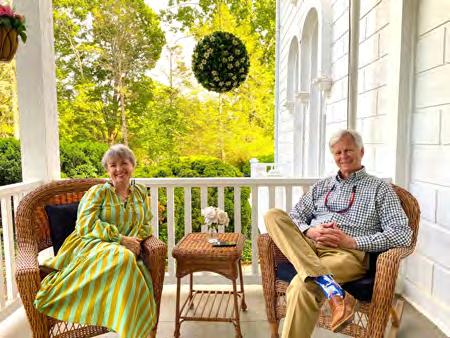
Jason, a modern Renaissance man with a love for history, architecture, and culinary arts, and Casey, a nurturing mother with a flair for photography and homesteading, saw in Mayhurst Estate the perfect canvas for their vision. Driven by a shared dream, they took a leap of faith and purchased the estate, unaware of the global upheaval that was just weeks away. Three weeks after purchasing Mayhurst, the world was plunged into the chaos of a global pandemic. They had purchased their dream Luxury Bed and Breakfast when the world was quarantined. What was meant to be a period of joyful transition

turned into a baptism by fire. The pandemic brought unprecedented challenges, but the Cashells often say it is a story of survival that they cannot take credit for … it is a story of miracles. It not only took miracles for the dream of Mayhurst to happen, but it took miracles for it to survive. From the initial purchase to the pandemic to the day-today challenges of running a historic bed and breakfast, their story is one of resilience and faith. Each day at Mayhurst is a testament to their unwavering commitment to their dream and the goodness and sovereignty of the God who brought them here. The Cashells and their children elevate hospitality to heartfelt refinement. No pretentiousness here. Just love. This former estate of James Madison’s grandson feels like home. But it’s also a work in progress. As we arrive, Jason is out cutting down a tree. We glimpse the industrious Cashell children dashing here and there. (They each have their own nascent businesses.) Birds are singing, and goats bleat in the distance. Casey receives us like family. We chat like old friends, and laughter flows from our hostess as easily as her words. “We have a ministry here for ministers and their families. Actually, we have a few ministries. That’s just one of them. Mayhurst is multifaceted. It’s like
everything we love in one place. So! You get a very historic room. Robert E. Lee stayed in here. This was actually (General) A.P. Hill’s headquarters for three months during the Civil War. Eighteen thousand soldiers were here. Orange (Virginia) was like the hub for encampments. Right across the road was Zachary Taylor’s place. (Taylor and Lee were related.) There were soldiers up in the cupola; so, there’s handwriting up in the glass windows. General Jackson was here a few times before the encampment. Yeah, lots of history. There are five stories total. You’re welcome to explore.
There are sitting areas everywhere.”
and an admirer of the U.S. Constitution and the Founding Fathers.
“There are tea stations here. Would you like something now?” We decline. “Well, it’s here whenever you want it. There’s water, coffee, and espresso. You can make lattes too. We have thirtyseven acres with walking trails, a pond, and some ducks. You’ll see them up here … unfortunately.” Every morning at dawn, the ducks walk up the hill and hang out on the back veranda.

We enter the dining room and I comment on a painting of Frederick Douglas. “Yes. He’s a longtime hero of my husband’s,” Casey says. A slave for the first twenty years of his life, Frederick Douglass became a social reformer, abolitionist, orator, writer, and statesman. He was an advisor to Lincoln
Because Mayhurst is so close to D.C., it has become a popular getaway for politicians and congressional staffers. “We had big dreams for what we wanted to do here. But God had even bigger plans. It’s pretty amazing. Because we’re so close to D.C., we get to meet so many people. We’re, like, an escape for everybody. That was one of those unexpected, didn’t know what the Lord had in store kind of things. We get to minister to D.C.—in a different





are barriers and tiers and rank—military and politics and everything. But when they come here, they’re in bathrobes and having coffee, and they’re with their wives and children, and you get to know them just as them. You actually get to have meaningful conversations full of the gospel and about truth. They often come over and over. We’ve had over nine thousand guests in this house in five years. The Lord continually appoints and directs people to come here. And He prepares hearts. We know we’re here to plant seeds in what is a dry and weary land.







Sonny Clair was away on a work trip in March when his wife called him with some scary news: She had been the victim of a phone scam, and they were out around $6,000.
The scam had started that morning when someone claiming to work for U.S. Customs called Clair's wife, 58, to tell her that several packages addressed to her previous homes were full of drugs, fake IDs and cash, and that multiple bank accounts at different financial institutions in El Paso, Texas, had been opened in her name.
She would have to attend a court date in El Paso within the next day or two, the caller said — a nearly impossible task seeing as the Clairs live in Knoxville, Tennessee. Another option, the caller suggested, was to separate the "illegal" money from the Clairs' legitimate assets.
Two hours later, after transferring her to other people claiming to work for the U.S. government, the scammers sent Clair's wife to withdraw cash from her



bank account and then deposit it via a Bitcoin ATM to an account they could access. They rattled her by making up fake badge numbers and referring to the family's previous addresses, scaring her so much that she left work in a hurry, without taking time to think.
"She's very intelligent," Sonny Clair says. "But once they got her on her heels, she was never given the opportunity to look back."
Clair's wife is certainly not alone. The FBI's Internet Crime Complaint Center recently announced it had received a record number of complaints last year: 880,418, with potential losses exceeding $12.5 billion. Americans aged 60 and over reported a disproportionate share of those potential losses — $3.4 billion, 11% more than people in that age group lost in 2022 and more than twice the amount lost by victims aged between 40 and 60.
Tech support scams were the most common cybercrimes against
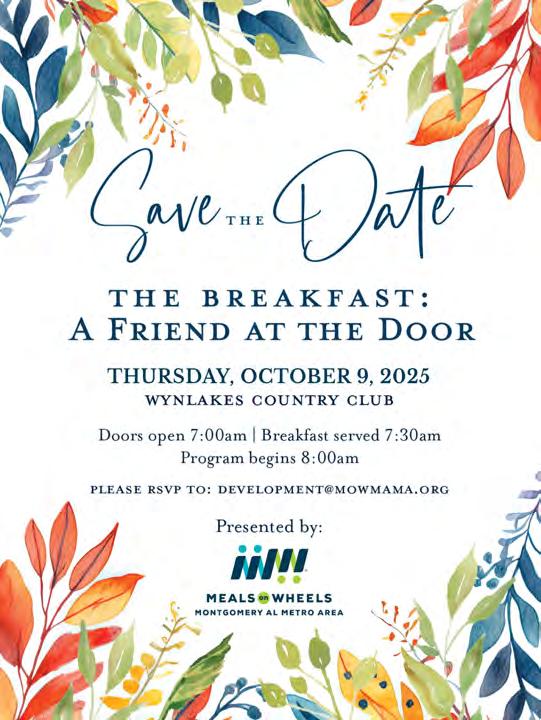
adults aged 60 and older last year , accounting for 17,696 complaints, according to the FBI's 2023 Elder Fraud Internet Crime Report.
Tech support scams involve crooks pretending there is something wrong with your computer and "warning" you of the issue via calls, pop-up messages and emails in order to eventually access your information. They may say they need remote control of your computer to fix the issue, install dangerous software or try to get you to pay them for their fake services.
The agency says call centers overwhelmingly target older adults. People over 60 made 40% of the complaints about this type of scam and experienced 58% of the losses, almost $770 million. In addition to losing more than all the other age groups combined, some people in this age cohort lost their homes, emptied their retirement accounts and borrowed from friends and family to make up the losses, the FBI's report found.

Other Common Flim-Flams "Scammers are changing their techniques up, making different types of scams to catch people off guard," Joyce Petrowski, founder and board president of R.O.S.E. (Resources/Outreach to Safeguard the Elderly), says of tech support scams. "I've talked to so many people who have lost money in a scam that started out as tech support."
Another common crime against this age group were confidence and romance scams, which involves the perpetrator pretending to be someone else to win over the victim's affection or confidence. One reason older adults experience this type of scam is that they can be more isolated than other age groups, says Marti DeLiema, an assistant professor at the University of Minnesota who studies financial fraud.
"People who are lonely, who don't have a lot of social engagement in their dayto-day life, they're more likely to engage with those types of solicitations and offers," DeLiema says. "We're vulnerable wherever there is an unmet need and scammers are out there offering solutions to those unmet needs."
In the case of confidence and romance scams, that unmet need may be companionship, and social media sites like Facebook or even gaming apps like Words with Friends are where many older adults go to find that companionship — and where many scammers find people to exploit, she adds.
Personal data breaches, non-payment or non-delivery scams (in which a victim never gets paid for goods or services they sell or never receive the goods or services they pay for) and investment scams made up the other three most common scams against older adults, according to the FBI's report. The investment scams, which often promise low-risk investments with guaranteed returns, were the costliest kind of elder fraud last year, resulting in $1.2 billion in losses.
With new technology comes new opportunities for scammers. Around
15,000 complaints from people aged 60 and over involved a cryptocurrency, like the scam that targeted Clair's wife.
While there is no reason to think scammers will stop targeting older adults, experts say there are steps people can take to help keep themselves safe.
Understand cybersecurity basics. Scammers have more advanced ways to commit cyber fraud, but taking simple cybersecurity steps can help prevent these crimes:
• Do not click on pop-ups, no matter how bright they're flashing or how loud they are.
with prevention. Perhaps you don't use Bitcoin or don't buy gift cards (which are often used in scams). Petrowski says that a lot of older adults grew up without cell phones and are used to immediately picking up the phone when it rings, including from unknown numbers. But it may be best to let that person leave a message and call them back. She says to consider setting your phone to automatically send unknown numbers to the voice message system — that way, you don't even have to make the decision yourself.

• Use a licensed commercial dealer to have your computers repaired.
• Take a breath before clicking links or downloading attachments in emails, even if the address looks familiar.
The FBI offers guides on how to protect yourself, including how to avoid spoofing and phishing scams in which someone disguises email addresses, phone numbers or names, or trick you into giving information or clicking harmful links. R.O.S.E. also has many resources, including a newsletter and podcasts, full of ways to protect yourself.
Don't engage. If you get a strange text message that says something like "Hey, are we still meeting up for dinner tonight?" many people might not think there is harm in responding, since they can choose to cut off the conversation at any time. But that's a slippery slope, DeLiema says. "The best plan is to just never engage at all." That goes for emails and phone calls, too.
Have hard-wired decision rules. Similar to how someone might say that they don't drive in a snowstorm, you can create rules for yourself to help
Always have a trusted person. When you become engaged in a scam you are likely to be scared, anxious or experiencing some other intense emotion. Petrowski recommends designating a trusted person like a friend or family member you can check in with before taking any further action. "That person is in a rational state and you're probably in an emotional state," Petrowski says. "They can help you get back into a rational state and help think through the process."
Verify before you trust. It's important to verify information before you act on it, Petrowski says. If you're worried something is wrong with your Amazon account because of a suspicious email, for example, find the verified Amazon phone number or email address to ask. If you get a call that says a grandchild is in trouble, call that grandchild (or a parent or sibling, if they don't answer) before taking any action like sending money.
Freeze your credit. If you're not constantly getting credit, Petrowski says to consider freezing your credit to prevent other people from being able to open credit accounts in your name. You have to call the three main credit reporting agencies (TransUnion, Equifax and Experian) individually to initiate the freeze, but it's free to do. •


Question! If you got paid every time someone said "you're not getting older, you're getting better", how stuffed would your childhood piggy bank be? No matter how it is said, we hear it as "you're getting older and you're not getting better.
I am here to tell you that no less a source than National Geographic says we ARE getting better! They do science, don't they? So here's the scoop.
Spoiler alert: All the improvements are to your MENTAL health.
"NG" posted a list of ways your health actually IMPROVES as you age.
1. WE get better at handling stress. A study in 2023 found that seniors produce less cortisol, and you also just get USED to stress. "Older people have a lot more ability to understand stressful or difficult circumstances."
I had entire eras in my life that were non-stop stress, and I always heard helpful but annoying things like "this too shall pass". If you live long enough, you realize "this", whatever it is, will go away or become more manageable. Experience becomes our best friend.
2. We become more emotionally resilient. When stressful stuff does happen, you're better equipped to bounce back from it. It's the Serenity Prayer, really. We accept the things we cannot change and stop wasting time on them.

focus on the things that actually make us happy.
Many of us still spend time on social media, which can become a community courthouse of judgment and negativity. I refuse the summons. Social media friends come and go, and I'm not giving it the power to make or break my daybecause at the end of that day, who gives a damn?

4. Your sex life might improve. People in relationships often report that their sex life gets better in their 50s and beyond. It may take all night to do what we used to do all night, but that's ok. Science has stepped up to help men and women with various sexual health issues, but the desire doesn't vanish, so why not enjoy?
not hit peak happiness until your 60s, or even 70s.
I have found that to be true, in part because of Points 1-4! These are the gifts of time!
"Old" changes with time. When I was 20, a woman 7 years my senior got aggressive with me in the "privacy" of the radio station music library. She was good looking, nice bod- but at 20, 27 seemed OLD. Just for the record, 27 seems way too young. My name is Budell, not Belichick (though good luck with that one Billy Boy!).
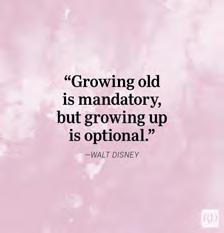
In a related story, GEN Z (under 30) was asked in a recent survey, "What age do you consider old?".The answer? 35! I'd pick that as the best age. We've made and learned from mistakes. We know what we want and what we are doing. We have become a brand around 35. Our bodies are years from true aging. 35 as "old" is just absurd, but perception is reality. I'm not mad at GEN Z because I get it. They will learn as they hit that benchmark and realize they're just taking off and with less baggage. Without getting into specific age points, I've compiled a list (with help) of aging signs that can occur at any point in life:
3. We stop caring about what everyone else thinks. This is a big one. As we age, we tend to stop comparing ourselves to other people so much. It lets you
5. Happiness peaks again. How happy we are tends to follow a U-shaped curve. We're happy in our early 20s. . . a little less happy in our 30s and 40s. . . but then it rebounds. Studies show you might
The hair on top of your ear is longer than the hair on top of your head. (no) You attend school board meetings. (Yes!) You have a pickleball injury. (not yet) You enlarged your iPhone font. (only a little) Your favorite thing to buy at Costco? Prunes. Your second favorite thing to buy at Costco? Shorts. (No prunes for me.)
Crypto scares you. (totally)
You know your primary care physician's first name. (yes)
You use the handrail when you climb stairs. (Yep)
After sipping a cocktail, you said the phrase, "Whoa, too strong." (teetotaler)
You recognize the song playing overhead at CVS. (I was a DJ for many years, so call it a career benefit!)
You regret your tattoos, as that butterfly returns to a cocoon-like shape.
Science has also confirmed one other adage from our BOOMerhoodsopposites attract! A study on relationships confirmed that almost HALF of successful relationships involve partners with seemingly little in common. Examples:
1. One person is always cold, the other's always hot.
2. One's a saver, the other's a spender.
3. One's a planner, the other likes to go with the flow.
4. One's an early bird, the other a night owl.
5. One is open about their feelings, and the other keeps things bottled up.
6. One likes to wake up slowly, the other jumps out of bed ready to go.
7. One's a chatterbox, the other's quiet.
8. One's tidy, the other's a slob.
9. One loves big parties, the other would rather stay home.
10. One loves spicy food, and the other one can't handle heat.
There's only one scenario where the opposites attract paradigm can't possibly work. One likes BOOM Magazine and the other doesn't. Enjoy your August!
Greg Budell has lived in Montgomery for 20 years. A 50+ year veteran of radio, TV and writing, Greg hosts the Newstalk 93.1FM Morning Show with Rich Thomas, Susan Woody, and Jay Scott, 6-9 AM Monday - Friday. He returns weekday afternoons from 3-6 PM for Happy Hour with Pamela Dubuque and a variety of sidekicks. His favorite topic is life! Greg can be reached at gregbudell@aol.com.



As summer winds down and families prepare for a new school year, much of the focus naturally falls on students and their parents. But there’s another group with the power to make a real difference during this busy, emotional, and sometimes chaotic season: grandparents.
Whether they live nearby or across the country, are retired or still working, grandparents bring a unique blend of perspective, patience, and presence that can offer steady support during this seasonal transition. And for families juggling packed schedules, growing to-do lists, and first-day jitters, that support can make all the difference.
Here’s how grandparents can actively, intentionally, and meaningfully support their children and grandchildren as a new school year begins.
The start of a school year brings big feelings for everyone in the family. Children may feel anxious about new teachers, new schools, or just being apart from their summer routines. Parents may feel overwhelmed by logistics, finances, or the emotional tug of watching their little ones grow up too fast.
Grandparents can serve as an emotional anchor during this time, offering calm reassurance and perspective.
A quick phone call or text with a message like, “You’ve got this!” can go a long way, whether it’s sent to a nervous grandchild or an exhausted daughter. For younger kids, a handwritten note tucked into their backpack or lunchbox from Grandma or Grandpa can feel like a warm hug from home.
Even older children—those navigating middle or high school— can benefit from a call or message that reminds them they are loved, capable, and not alone. Grandparents have the unique authority of wisdom and unconditional love, and this combination can be especially grounding when the world feels a little uncertain.
One of the most practical ways grandparents can support their families is by lightening the logistical load during back-to-school season. But the key is to offer help in ways that feel supportive, not controlling.
If you live nearby, consider:
• Offering school pick-up or drop-off help, even if only once a week.
• Babysitting younger siblings during school supply shopping or parent-teacher meetings.
• Preparing a meal or hosting a Sunday dinner the night before the first day of school.

• Helping with homework if you have the time, energy, and subject knowledge.
If you live farther away, you can still lend support by:
• Sending a care package with school supplies, snacks, or books.
• Scheduling a regular FaceTime call to check in and chat about the school week.
• Providing financial help if appropriate—like chipping in for school clothes, extracurriculars, or lunch accounts.
Many working parents feel like they’re racing against the clock each day. Even small acts of help—like running an errand, taking a child to practice, or handling bedtime stories—can relieve stress and create cherished memories in the process.
Children thrive with stability, and grandparents can offer something rare in today’s fast-paced world: unhurried attention.
While the school year often ramps up screen time, academic pressure, and social obligations, grandparents can be a grounding presence. Whether it’s building puzzles, baking cookies, listening to stories, or working on a model train set, these slower activities offer emotional space that many children (and even teens) crave but rarely receive.
These moments become even more important for kids dealing with anxiety, learning challenges, or changes at home such as divorce, moves, or family stress. A grandparent’s ability to simply be present—without fixing, judging, or rushing—can help kids feel seen and supported at a time when the world may feel overwhelming.
Rituals and traditions help children feel rooted, and grandparents are often the keepers of family customs. Backto-school season is a great time to revive, reimagine, or start traditions that create a sense of continuity and celebration.
Some ideas include:
• A back-to-school breakfast or dinner hosted by Grandma and Grandpa each year.
• First day of school photos sent to grandparents, followed by a phone call or video chat that evening.
• A small gift or token sent each year to mark the start of school—like a new bookmark, a pack of pencils, or a note of encouragement.
• Sharing stories about what school was like "back in the day." Kids often love hearing how their grandparents used to walk to school, what lunches cost, or what their favorite subject was.

Even teens and college students benefit from traditions. A call before the first day of classes, a text with an inside joke, or a care package during syllabus week can create touchpoints that reinforce family connection, no matter how old they get.
One of the trickiest parts of being a grandparent is knowing when to lean in and when to step back. Supporting your children (the parents) during the school year often means respecting their parenting choices, even if you would do things differently.
Try to avoid offering unsolicited advice about bedtime routines, screen time, or whether a child is “overscheduled.” Instead, offer encouragement and ask how you can help in ways that honor their boundaries.
Phrases like:
“Would it be helpful if I…?”
“Let me know if there’s a way I can make this week easier.”
“I admire how you’re juggling so much right now—what’s something I could take off your plate?”
…go a long way toward creating a partnership dynamic instead of one that feels intrusive or judgmental.
While supporting the parents is important, don’t underestimate how valuable your presence is to your grandkids directly. Some children may not articulate it, but having a grandparent who takes an interest in their school life—who remembers their
teacher’s name, who asks how the math test went, or who listens when they talk about a friend drama—can be a powerful source of confidence and comfort.
For younger children, try reading with them (in person or over the phone), helping them practice spelling words, or listening to them explain their school projects. For older kids, simply asking “How’s school going?”—and actually listening without jumping to solutions— can open doors.
The goal isn’t to fix anything. It’s to be there. To show them that their story matters, and that you’re cheering them on
Children look to the adults in their lives for cues about how to handle change, growth, and stress. Grandparents have the opportunity to model lifelong learning and resilience in powerful ways.
If your grandchild is nervous about a new grade or struggling with confidence, share a story about a time you felt uncertain—and what helped you through. Talk about how you faced a new job, moved to a new town, or learned something new later in life.
This doesn’t mean giving a lecture. It means opening the door for empathy and connection.
You might say, “I remember being nervous about my first day of high school too. I didn’t know anyone in my homeroom, but by the end of the week, I had a new friend. It’s okay to feel nervous. You’ll find your rhythm.”
Children absorb more from our stories, tone, and presence than we realize. And a grandparent’s calm, encouraging voice can become a child’s inner voice for years to come.
As families dive into the back-to-school routine, it’s easy for grandparents to feel unsure about where they fit in. But the truth is: you are needed. Not because your job is to fix things or take over, but because your presence, support, and perspective bring something that no one else can offer.
Whether you’re helping with carpool, sending a quick good luck text, or just asking thoughtful questions about their day, your actions create emotional safety and family connection. And in a season filled with change, that’s one of the greatest gifts you can give. •
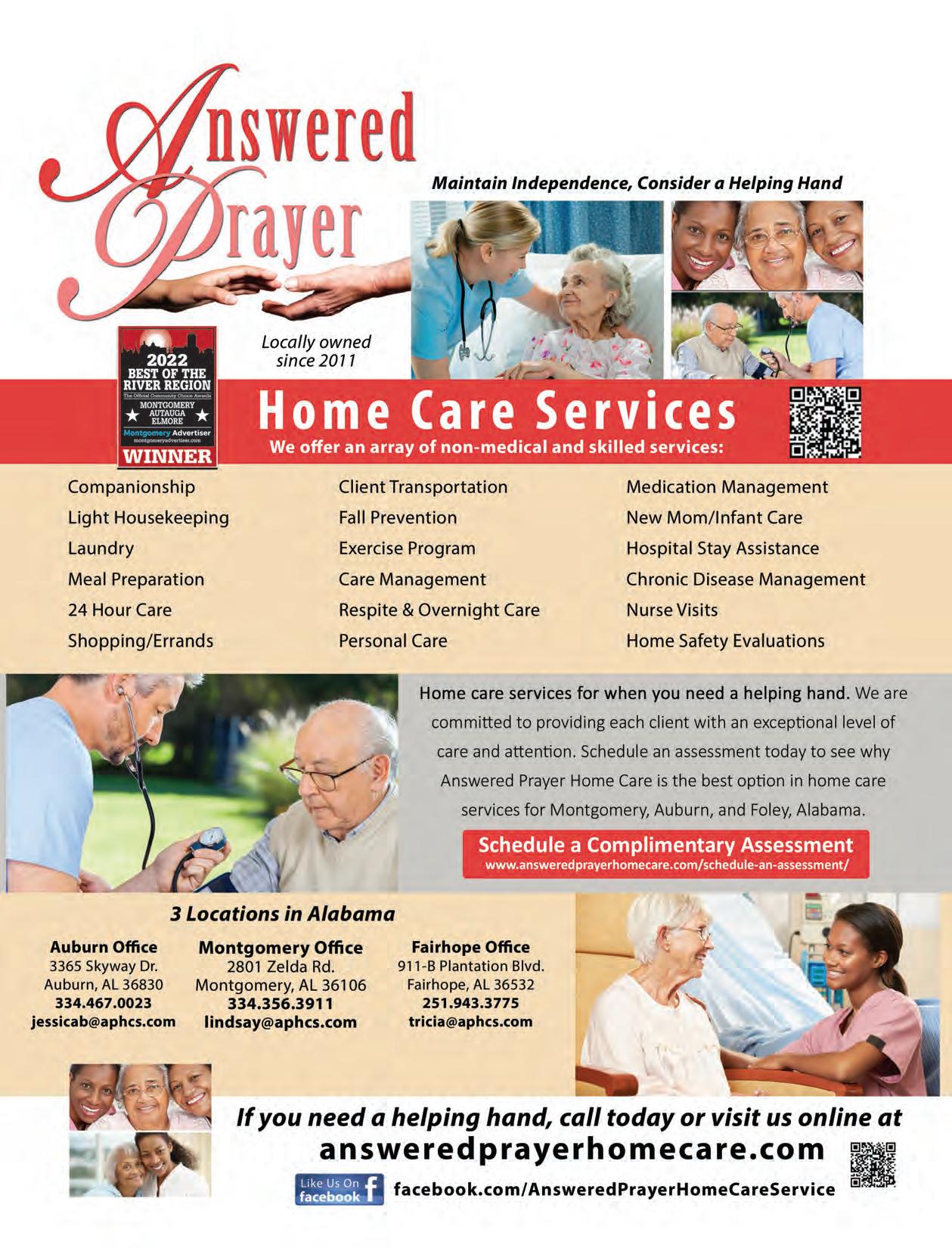
We just got back from a week in Seagrove Beach, smack in the middle of 30A—and I need a nap, a chiropractor, and maybe a silent retreat.
As empty nesters, my wife and I had this vision: a sweet beach week with the kids and grandkids, making memories and soaking in that pictureperfect Florida sun. And we did make memories. I’m just not sure how many of them didn’t involve someone crying, sunburned, or covered in sand.
Let’s start with the house. Online, it looked like a coastal dream. In person? Well, when you put 12 people, a toddler who hates sleep, and a mother-in-law with opinions about everything under one roof, you start to understand why people go on solo vacations.
And the beach… oh, the beach. You don’t just go to the beach. No, you prepare for the beach like you’re staging an invasion. Umbrellas, chairs, coolers, beach toys, SPF 1000, a Bluetooth speaker, at least one inflatable flamingo, and fifteen snacks (ten of which will be dropped in the sand within minutes). By the time we trudged down to the water each morning, I needed a nap and possibly physical therapy.
Once we got down there, the wind picked up—because of course it

did—and our umbrella turned into a low-flying missile, nearly decapitating a sunbather from Ohio. One of the grandkids dropped a chicken nugget in my lap while I was trying to read, another one had a full-blown meltdown over a broken shovel, and I managed to get sunburned on just the tops of my feet. Explain that science to me.
Then there was dinner out. We made the brave decision to go as one big group. I don't know who needs to hear this, but 5:00 p.m. is not early enough to beat the crowds on 30A. We waited an hour and forty-five minutes while wrangling overtired kids and trying to keep Grandpa from loudly commenting on the prices. By the time we sat down, I was too tired to chew and too broke to care.
But here’s the thing—I’d do it again.
Because in the middle of the chaos were those little moments that make it all worthwhile. Watching the grandkids chase crabs with flashlights under the
stars. Drinking coffee on the porch with my grown kids while the house was still quiet. That one perfect hour when everyone was floating in the gulf, no one was crying, and I thought—this is it. This is the good stuff.
So yeah, I’m grumpy. I’m still shaking sand out of places sand should never be. My wallet is lighter, my back is tighter, and I may never fully recover from assembling that beach tent. But I’m grateful. Grateful for time with family, for the sound of little feet on hardwood floors, for laughter around the dinner table, and for the reminder that love—real love—is a little loud, a little messy, and absolutely worth it.
Now if you’ll excuse me, I’m going to sit in complete silence, sip something strong, and look at those blurry beach photos like they’re the crown jewels of summer.
- Archie Grumbleton

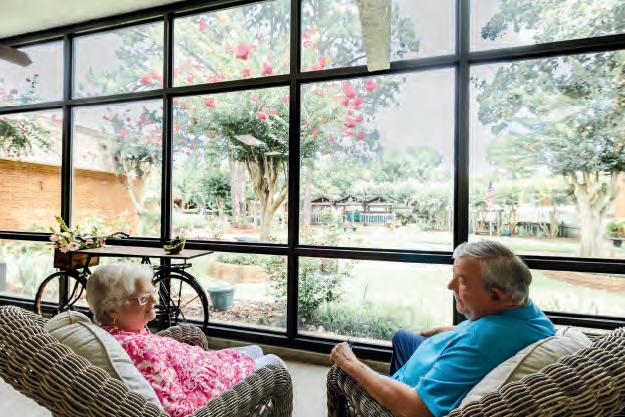
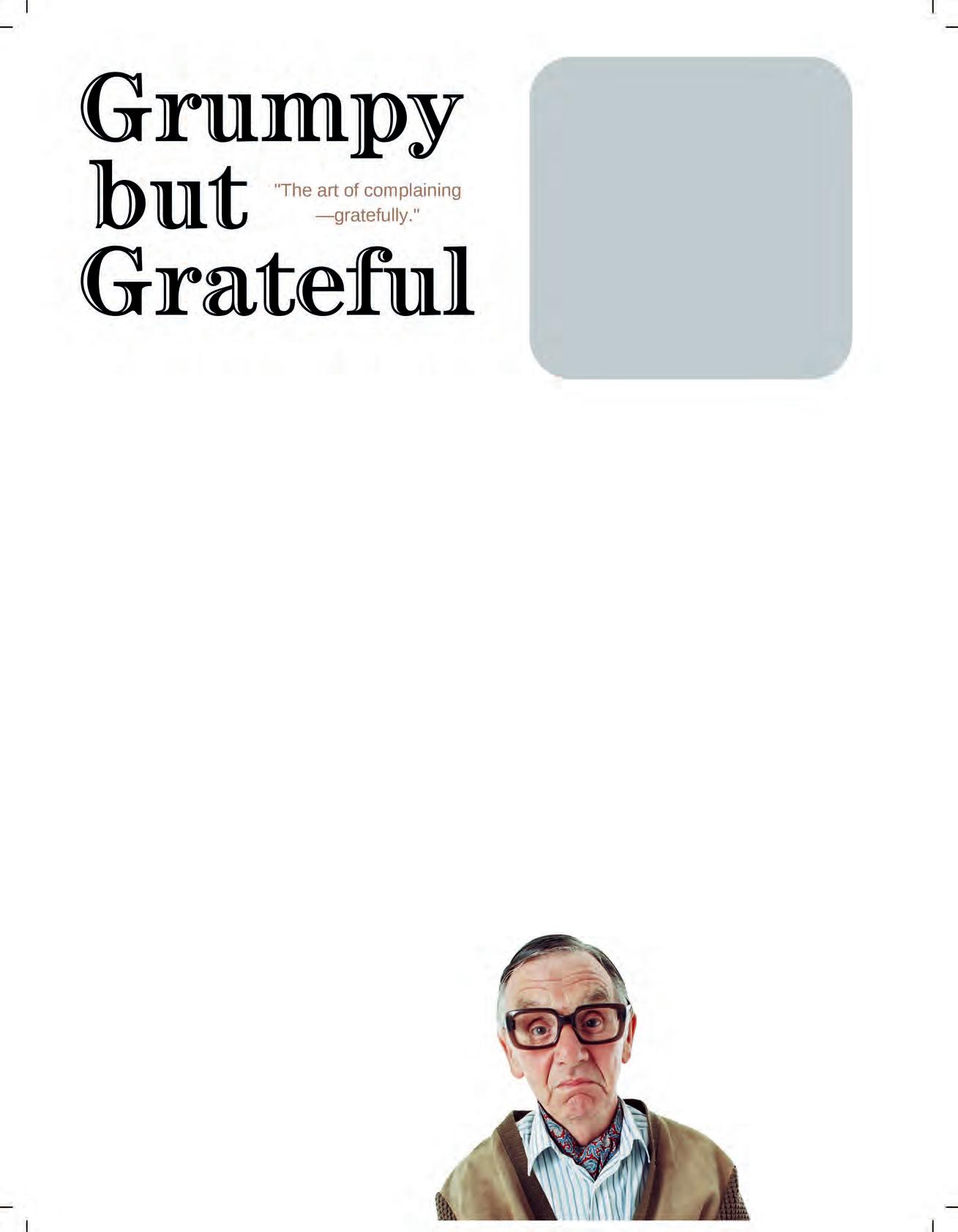












As women enter midlife, their bodies begin to change in noticeable and often frustrating ways. One of the most common complaints during and after menopause is the sudden development of stubborn belly fat—a soft yet unrelenting pot belly that wasn’t there before. It can feel unfair. After all, your diet hasn’t drastically changed, and you’re still moving your body. But somehow, your midsection is growing, your pants are tighter, and your old routine no longer seems to work. This belly bulge isn’t just a cosmetic nuisance; it can be a sign of deeper hormonal and metabolic shifts. Fortunately, it’s not irreversible— and understanding the root causes can empower you to take the right steps to reclaim your health.
One of the main culprits behind menopausal belly fat is the decline in estrogen levels. Before menopause, estrogen plays a protective role in fat distribution, helping women store more fat in the hips and thighs. As estrogen levels drop, that pattern shifts. Fat is more likely to settle in the abdominal area, creating what many women describe as a “menopause belly.” This type of fat isn’t just subcutaneous (the pinchable kind beneath the skin). Much of it is visceral fat—deeper fat stored around internal organs like the liver and intestines. Unlike subcutaneous fat, visceral fat is metabolically active, releasing inflammatory compounds and hormones that increase the risk of serious conditions like heart disease, type 2 diabetes, and insulin resistance.
But hormones aren’t acting alone. As women age, they naturally lose muscle mass—a condition known as sarcopenia—which causes the metabolism to slow. Muscle is a calorie-burning machine, even at rest, and the less you have, the fewer calories you burn. This combination of hormonal decline and muscle loss makes weight gain almost inevitable unless new strategies are adopted.
On top of that, stress levels tend to rise during midlife. Between aging parents, career transitions, and children leaving home, many women find themselves in high-stress situations—and chronic stress means elevated cortisol. This stress hormone is strongly linked to increased abdominal fat storage. So it’s not just menopause itself, but the lifestyle and emotional realities of this life stage that contribute to the growing waistline.

Many women try to lose the belly by cutting calories and increasing cardio, only to find themselves stuck, hungry, and discouraged. That’s because the traditional “eat less, move more” mantra oversimplifies a far more complex biological reality. As estrogen declines, the body becomes more insulin resistant, meaning it doesn’t process carbohydrates as efficiently as it once did. Eating the same foods—even in the same amounts—can now lead to higher blood sugar spikes and
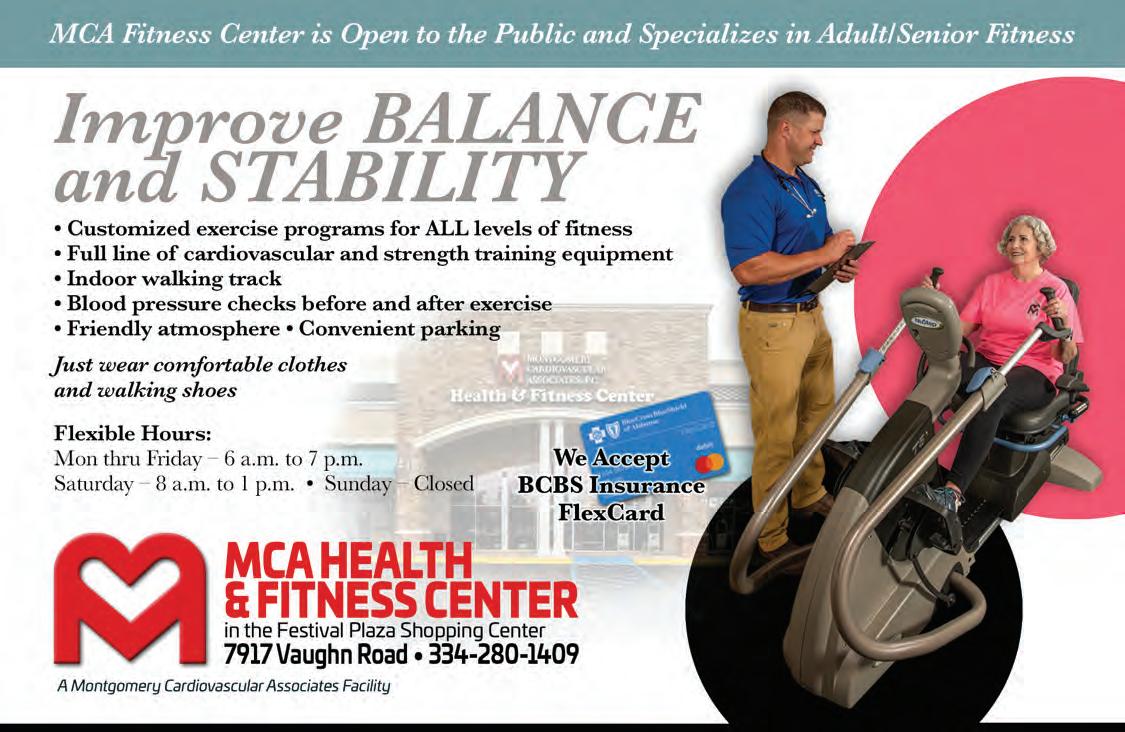
more fat storage. The key is to understand that your body has changed, and your approach needs to change with it.
Rather than focusing on calorie restriction, the goal should be to nourish your body with foods that stabilize blood sugar, reduce inflammation, and support hormonal health. Protein becomes essential—not just to preserve muscle mass, but to help keep you full and reduce cravings. Aim to include 20 to 30 grams of highquality protein with each meal. Think grilled chicken, wild salmon, eggs, Greek yogurt, tofu, legumes, and lean cuts of beef or turkey.
Pair protein with fiber-rich vegetables, low-sugar fruits like berries, and small amounts of complex carbohydrates such as quinoa, brown rice, oats, or sweet potatoes. These foods support gut health and provide steady energy without the blood sugar rollercoaster.

Healthy fats are also important, especially for hormonal balance. Avocados, olive oil, nuts, seeds, and fatty fish like mackerel or sardines all contribute to satiety and support the body’s anti-inflammatory processes.
At the same time, it’s wise to reduce or eliminate refined sugars and processed carbohydrates, which are more likely to spike insulin and contribute to belly fat. White bread, pastries, sugary drinks, and most packaged snacks fall into this category. Alcohol, particularly beer and sugary cocktails, can also sabotage your efforts by adding empty calories and disrupting blood sugar regulation.
If you’re not lifting weights, now is the time to start. Strength training is one of the most powerful tools available for countering menopausal weight gain. It helps you build and preserve lean muscle, which in turn raises your resting metabolic rate—meaning you burn more calories even when you’re not exercising. It also improves insulin sensitivity and reduces inflammation, making it easier to lose visceral fat.
Cardio Counts—But Don’t Overdo It
Cardiovascular exercise still matters, especially for heart health and emotional well-being, but it’s important to be strategic. Endless hours on the treadmill or elliptical aren’t necessary— and in some cases, may be counterproductive by elevating cortisol and increasing hunger.
Instead, aim for 30 to 45 minutes of brisk walking most days of the week. Walking is a low-stress, sustainable form of movement that supports fat loss and reduces inflammation. For added benefit, consider incorporating interval training once or twice a week. This could be something as simple as alternating one minute of fast walking or jogging with two minutes of
Managing stress is just as important. Chronic stress keeps cortisol elevated, pushing the body into fat-storing mode— especially around the abdomen. Even just 10 to 15 minutes of daily meditation, deep breathing, or gentle yoga can lower cortisol levels and support fat loss. Finding moments of calm— whether through journaling, walking in nature, listening to music, or connecting with friends—isn’t just good for your soul, it’s vital for your belly.
Sometimes, despite best efforts, the pot belly persists. If you’re doing all the right things—eating well, exercising consistently, managing stress—and still seeing no improvement, it might be time to speak with your healthcare provider. Hormone Replacement Therapy (HRT) may be appropriate for some women, not only to manage hot flashes and mood swings, but also to support fat distribution and insulin sensitivity.


It’s also wise to get your thyroid checked, as hypothyroidism can mimic or worsen menopausal symptoms, including weight gain. Blood tests for blood sugar, insulin resistance, cholesterol, and cortisol levels can provide insight into what might be going on beneath the surface.
It’s easy to get discouraged when your body doesn’t respond the way it once did. But menopause isn’t a death sentence for your metabolism or your waistline. It’s a transition—and like all transitions, it requires adaptation. Be patient with yourself. The changes you make today may not yield instant results, but they build a foundation for strength, resilience, and well-being.
Most importantly, stop waging war against your body. The menopausal belly isn’t your enemy—it’s a messenger. It’s a reminder that your body is evolving and that now is the time to meet it with nourishment, movement, and care. Instead of chasing the body you used to have, honor the one you’re in now—and give it the attention and support it needs to thrive in this next season of life. •









Lobster Fest is back for our 7th year! Join us for fresh Maine lobster and great fellowship! Along with your lobster, you will get sides, dessert, bread, butter and lemons. You have a choice to eat your meal by dining-in or choose to pick it up live or cooked. Dine-in also includes a 30-minute reception before the dinner. Proceeds benefit our outreach missions including Ascension Day School and Respite Ministry. Cost $50. TICKETS may be purchased at riverregionlobsterfest.org.
Sunday, August 10 at 7:30 pm
Join us for an unforgettable night of soul-stirring music at the Devon Allman Blues Summit, a powerhouse gathering of blues legends that promises to electrify the stage. Featuring Devon Allman at the helm, this summit brings together an all-star lineup that includes the legendary Jimmy Hall of Wet Willie and Jeff Beck fame, who is renowned for his fiery harmonica and powerful vocals. Added to this magical evening is blues icon Larry McCray who is known for masterful guitar work and heartfelt stories that have resonated with fans worldwide. Complementing the summit’s line up is New Orleans’ very own soul sensation, Sierra Green, whose enchanting voice encapsulates the heart and spirit of the Crescent City. Together, this remarkable assembly of artists presents an epic evening that spans the spectrum of blues – from its gritty roots, through its evolution, and into its vibrant future. Tickets are $25-$55. Visit mpaconline.org.


August 14
Main Street Wetumpka's signature Wine Pull event is BACK for the fifth year, thanks to our friends at Wind Creek Casino & Hotel! The evening will offer stunning penthouse views, accompanied by splendid food and wine pairings from the award-winning Fire Steakhouse. Each pair of attendees will “pull” a bottle of wine and receive two signature wine glasses. Proceeds from this event go directly towards Main Street Wetumpka's mission of downtown revitalization.
Members: Couple $120 & Single $75 (Subject to taxes & fees) Non-Member: Couple $150 & Single $85 (Subject to taxes & fees) Visit https://www.bigtickets.com/e/main-street-wetumpka/winepull2025/.
Please present coupon or mention you saw it in the BOOM! Digital Issue. Offer Expires 08/30/25 Receive an additional 10%




Hog Days of Summer BBQ & Music Festival
Saturday, August 23 * 2pm to 10 pm * Union Station Train Shed
The Hog Days of Summer is a charity event benefitting Hogs for the Cause and other carefully selected local charities. Our best music lineup yet will be rocking the shed; spanning blues, rock, soul, country, roots, and other Americana influences. Once again, our patrons can look forward to enjoying BBQ from the River Region’s finest BBQ establishments. General Admission: $20
Visit experiencemontgomeryal.org.
Kissie has been an in-home care provider for over 20 years. In her short time with Home Care Assistance, she has not only shown exceptional care, compassion and a true dedication to her work, but also exemplary attendance and overall morale. Home Care Assistance is grateful to have Kissie Mack on our team.
“To care for those who once cared for us is one the greatest honors in life.” -Tia Walker
Thank you, Kissie, for being so AWESOME!
For more information visit www.homecareassistancemontgomery.com.

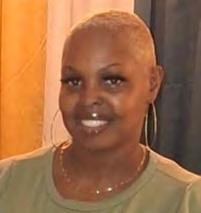

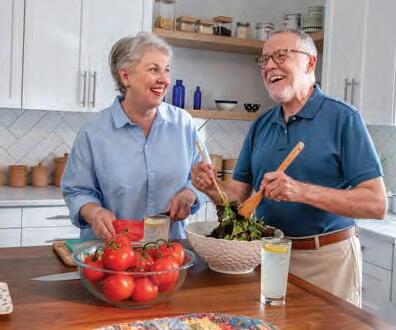


August 16 at 7 pm * Tallassee, AL
Mount Vernon Performing Arts Center, 321 Barnett Blvd, Tallassee Why settle for just any tribute show when you can experience the ultimate Elvis experience with Kenneth Loomis and friends!?! Join us for a night that will leave you singing along to the King's greatest hits and dancing in the aisles. Don't miss out on this unforgettable tribute to the one and only Elvis Presley! Visit https://mtvernonpac.ticketspice.com/elvis for tickets.
August 9 * 7 am to 2 pm
We are bringing together local vendors to spotlight all of their merchandise, lotions, gifts, and more. Vendor spaces are 10x10 for $25 and 20X10 for $45 by reservation only. Also, enjoy Food Trucks, Bounce Houses, Character Actors, and Entertainment. General Admission is $5 per person or a can of food for the Heart of Montgomery Food Bank or a pet food for our Montgomery Humane Society. 100% family friendly event. Visit https://thegarrettcoliseum.com/may-9-2025-rhythm-blues-2/.
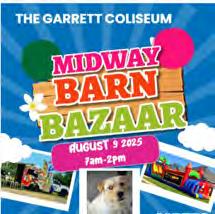

2025 Buckmasters Expo * August 15-17
Friday 3-8pm, Saturday 9am-7pm, Sunday 10am- 5pm Renaissance Montgomery Convention Center
This is one of the biggest Outdoor shows with over 300+ Exhibitor Booths, bull riding, Top Bow Archery Competion and much more! Some of the biggest names in the Outdoor Industry will be here. You do not want to miss this! Visit buckmasters.com/resources/expo.
The Newcomers Club of Montgomery welcomes women who are new to the area or simply looking to stay active, connect, and have fun. With monthly luncheons at Arrowhead Country Club, 10 activity groups, and local outings, joining the Newcomers Club is great way to make friends and get involved in the community. Learn more on how to become a part of our vibrant, supportive group of ladies at NewcomersOfMontgomery.com or newcomersmontgomery@gmail.com.
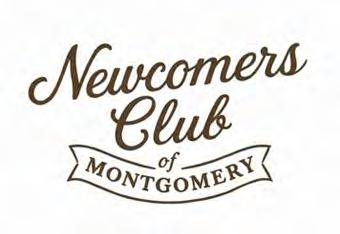


Montgomery’s
Recurring monthly on the 3rd Friday * 4:00 PM to 8:00 PM
The entertainment district area from the Riverfront going up to Dexter and beyond to S. Court Street will be transformed into a walkable entertainment district, free to the public and family friendly. Starting at 4pm, Montgomerians can catch a local art exhibition, hear outdoor music or enjoy a special refreshment while strolling the streets in the downtown area. Over two dozen participating businesses – restaurants, hotels, a bake shop and bookstore – are offering 3rd Friday specials: discounts on merchandise, live music, special drinks and menus, and more.
A musical journey that pays a loving tribute to the fantastic history of Motown Music with the look, moves, and amazing vocal harmonies. You’ll hear some of Motown’s Best Music including: The Temptations, The Jackson Five, Diana Ross & The Supremes, The Four Tops, Aretha Franklin, Smokey Robinson and more!


By Nick Thomas
Enjoying an urban forest with meandering walking paths or hiking trails is not always a luxury available to city dwellers hoping to briefly escape the fast pace of metropolitan life. Fortunately, the Auburn University at Montgomery campus is home to such an inviting green haven – 250 peaceful acres open to everyone in the community. But the creation of this wonderful woodland didn’t happen overnight.
After I began working at the university in the mid-1980s, colleagues would occasionally speak of trekking across campus during lunch breaks to stroll through the wooded area then commonly referred to as the Pecan Trail (or Grove).
Former AUM history professor John Fair told me recently that the first use of the area by the university in the 1970s was limited. A crude trail was forged by the occasional jogger, and a primitive building temporarily housed the campus weightlifting club.
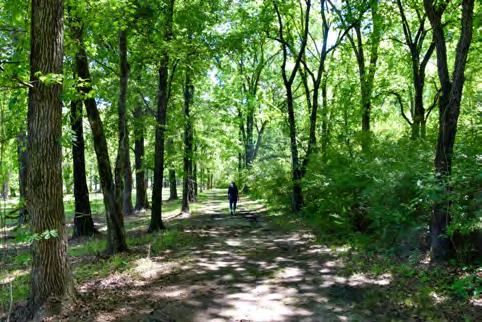
Wedged between the west side of the campus and Bell Road, this area was probably more frequently visited by wildlife back then and, in previous decades, by grazing cattle straying from local farms that once surrounded the area. Over the following years, however, the AUM community began to increasingly appreciate this pristine land as a valuable resource. Generally known as the AUM Forest today, four miles of primitive walking trails are threaded through an area making up approximately half of the AUM campus. Oliver Creek, which drains local storm water (eventually) into the Alabama River, runs along the east side of the forest.

“I well remember the formal opening of the trail, which was launched by (former AUM chancellor) Jim Williams on the dirt road just outside of the tennis courts,” recalled Fair. “We jogged at least part of the trail across a primitive bridge over Oliver Creek and into the Pecan Grove just beside the oldest pecan tree in the state.”
He remembers the trail extending through mostly underbrush on uneven terrain, emerging at an unfinished ring road overlooking the interstate, not far from where the State Forensic Lab would be eventually built. That site is now home to AUM’s new Science & Technology Complex that opened earlier this year.
Fair says the thick thorny brush was initially bushhogged, then mowed, but remained challenging to use. “Keeping the weeds and stubble down was always a problem,” he said. “With the Alabama heat, bugs, and occasional flooding, it was not always a pleasant experience.”
John G. Veres III remembers significant
improvements to the trail area in the mid to late 2000s during his tenure as AUM’s chancellor from 2006 to 2016.
“A grant was sought to level the trail, clear brush, and generally render the trail more attractive and more conducive to cross-country running,” Veres told me. “Unfortunately, the terms of the grant would have transferred control of the trail to the U.S. Department of the Interior.”
That arrangement was unacceptable, so the university elected to bear the cost of improvements from discretionary funds. A paved open path was also laid east of the creek and today remains popular with walkers, joggers, and bikers seeking exercise without venturing into the wooded region. Together, says Veres, the primitive and paved paths would “complement one another and provide amenities to students, faculty, and staff members.”
Around this time, the late AUM anthropology professor Terry Winemiller blazed (marked) the existing trails and

paths. Today, the multiple color-coded trails make it easy for visitors to navigate specific paths (a trail map is available on the AUM website or at the trailhead behind the tennis courts). The trails follow mostly flat, well-worn dirt paths that are easy to navigate with just a gentle incline or two, adding a bit of variety without being strenuous.
More than just a recreational site, the forest has become a source of research and teaching for AUM’s faculty. Kim Pyszka, who heads the Department of Sociology, Anthropology, and Social Work, has studied the history of the area prior to AUM’s founding in 1967. Our biologists also regularly visit the forest.
“The AUM trails now lead directly to the back door of our new science and technology building,” said Chelsea Ward, a biology professor and Head of AUM’s Biology and Environmental Sciences Department. “This allows our students and researchers direct access to the forest, which we use to study the effects of Kudzu and fire, as well as a data source for surveying plants and animals.” And there is plenty of wildlife lurking in the forest. My colleagues report the presence of deer, foxes, beavers, and coyotes while walking the trails. In fact, over 200 animal species have been catalogued on the iNaturalist website (link: www. inaturalist.org/observations?project_ id=aum-biodiversity-survey&taxon_ id=1&verifiable=any) as well as a bird database.
AUM’s ‘ForestExplorer’ project is also in the process of tagging forest plants with QR codes to identify species while walking, and the university is developing a Research Institute (RHERI) to use the area as a model to study Alabama’s historical, ecological, and environmental connectivity (link: www. aum.edu/rheri).
As a regular explorer of the AUM Forest over the years, I would have to agree with former Chancellor Veres, who noted, “I enjoyed walking the wooded area myself and found it to be some of the most visually interesting terrains AUM possesses.”
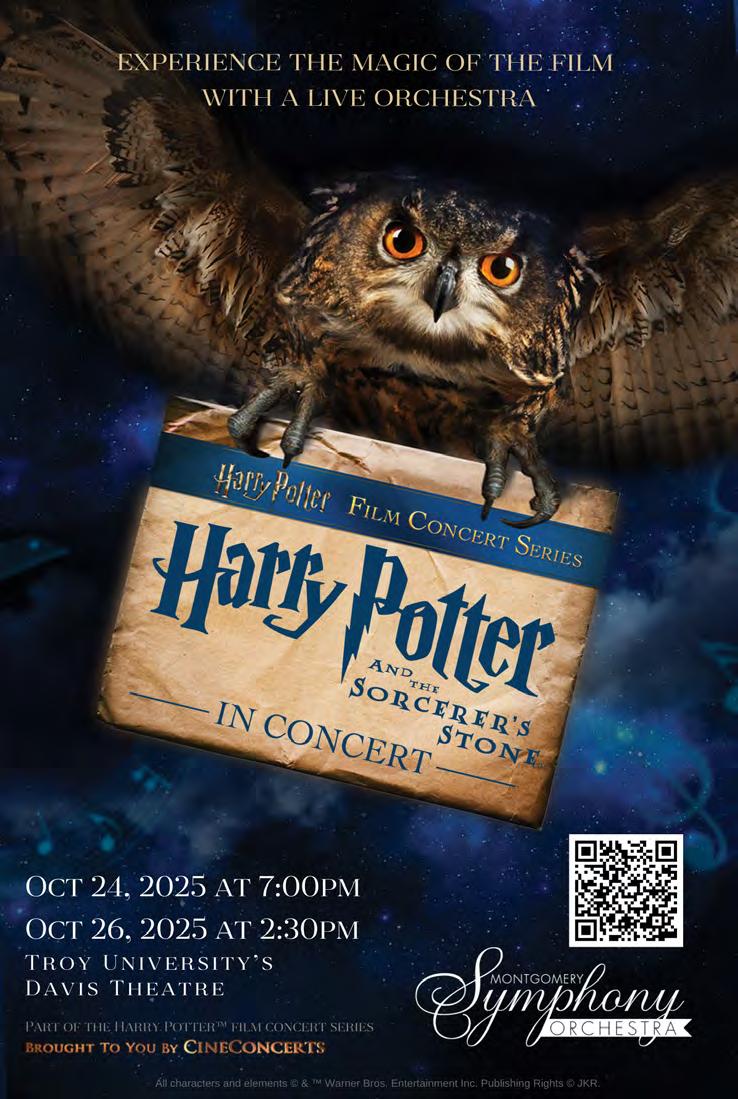
Nick Thomas teaches at Auburn University at Montgomery in Alabama and has written features, columns, and interviews for many newspapers and magazines. His hiking column describes short trails, hikes, and walks from around the country that seniors might enjoy while traveling. See www. ItsAWonderfulHike.com.

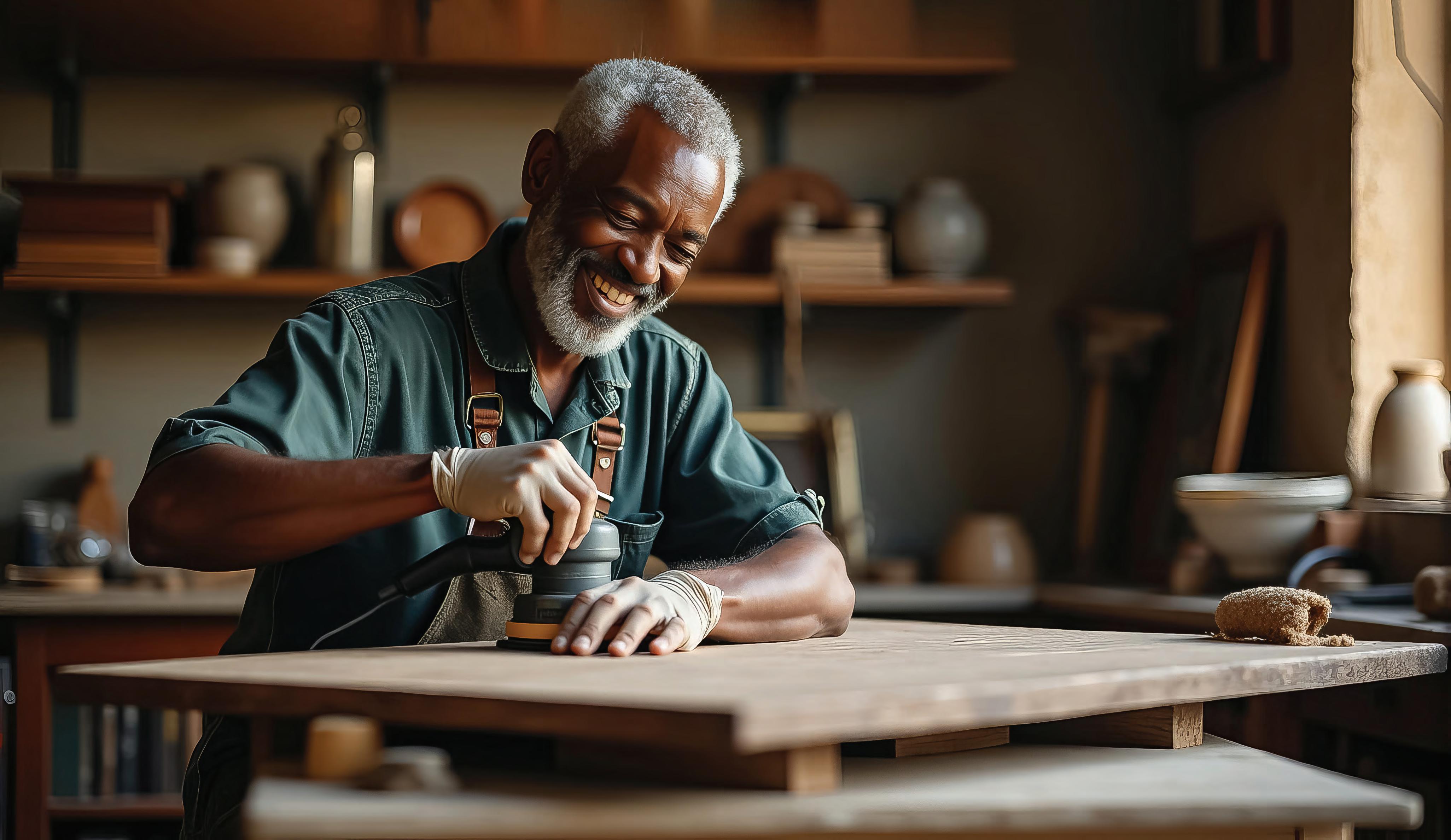



You see them everywhere. In supermarkets, in big-box hardware stores, at ballparks. They are the onceretired who have returned to work.
Some work from home as consultants or have found employment as insurance salespeople, proofreaders or financial managers.
At the top are executives who believed they wanted to retire at 55 but returned to the C-suite because they missed the challenge of leading a team.
Just four years ago, during the pandemic, older workers began leaving the workforce in large numbers. According to the Bureau of Labor Statistics, more adults aged 65 and older left the work force in 2020 than any year since 1948, when the U.S. began tracking the data.
Many of those who left the during the early part of the pandemic have "unretired" since then — more than half, according to a paper by T. Rowe Price Thought Leadership Director Judith Ward, a Certified Financial Planner. Of the 2.4 million additional people who retired in 2020, 1.5 million had "unretired" by March 2022.
These numbers are part of a growing trend of older workers who retire — not always by choice — and then decide to return to work seeking income or mental stimulation or both.
Approximately 19% of Americans aged 65 and older are employed today, according to the Pew Research Center, compared with just 11% in 1987. Yet, in the early 1960s, the share of those working was similar to today at 18%.
Support from a spouse, friends, former colleagues, a support group or a career reinvention coach can help. Consider Steve Robinson, who spent the first 30 years of his working life with the same company. Beginning as a sales representative, he ultimately rose to be its president in 2016.
But the culture of the company changed, and so did Robinson. "I really wanted out," Robinson, now 66, recalled. "I thought I was marketable in my industry. It turned out I wasn't. I floundered for about a year, got my real estate license. I was lost. I didn't know what to do."
That year he turned 60. In addition, the payout of shares he had in the company took much longer — seven years — than expected.
For Robinson, his path to an "encore career" was fraught with trial and error. Ultimately, career reinvention coach John Tarnoff, author of the book, "Boomer Reinvention: How to Create Your Dream Career Over 50," helped him get on track.
"It was pivotal," Robinson said. "What he taught me was to figure out who I was and what I wanted to do, then repurpose my LinkedIn page."
Robinson, like others who find themselves retired before they feel ready, had to determine what was important to him in his 60s. He realized "it was better to live life on my terms" as a consultant rather than seek a position as an employee.
Returning to the workforce is not necessarily a simple process. It requires some reflection, an honest evaluation of where you are in your life, and why you are seeking to "unretire" or find an "encore" career.
Know Yourself. Think about "who am I at this time in my life?" said John Tarnoff, 72. "How can I be useful?" In addition, determine which parts of your work you liked and which you didn't, said Chris Blunt, CEO of F&G Annuities & Life, Inc., who retired at 55 as a divisional president in the insurance industry.
Within four months, a recruiter contacted him about his current position. Now aged 62, he has been at F&G since January of 2018. "I don't have to work," he said. "I like to work." He missed the challenge of building and working with a team.
Consider Your Time Commitment. How much time are you willing to devote to an "encore" career? Do you want to work a 40-hour week or do you prefer to work part time at 20 hours?
Identify Your Core Skills. Look at your entire work history to determine your value. "Develop a career summary," said Damian Birkel, founder of Professionals in Transition, a nonprofit job search support group in Winston-Salem, North Carolina. This is the best of your past, and where you want to go in the future.
"It comes down to marketing your transferable skills," said Birkel, who turned 70 in December. If you choose to become a consultant, "you need a website," said Washington, D.C., area career coach Shira Lotzar.
Be the Solution. "The first thing is to be the answer to the employer's needs," said Birkel. The search process is the same but "more targeted and more niched," said Tarnoff. "Be specialists not generalists. Employers want you to be a specific solution to a specific problem."
"Despite digital tools, there is nothing superior to getting out and meeting as many people as you can."
Leverage Your Network. Once you figure out your interests, start networking. Ask, "Do you know anyone who does this?" Tarnoff said. It expands "like ripples in a pond."
How you network will depend on whether you are looking for a corporate job or you are becoming a consultant. Cast a wide net. Contacting five or six people isn't enough. Ask for 20-minute informational interviews; send the five questions you will ask ahead of your meeting. Avoid putting contacts on the spot by asking if they know of or have a job. Ask if there is anyone else they suggest you contact.
Figure Out Your Value. When looking for work, whatever the reason, be prepared to encounter ageism, experts say. "Younger people don't understand what it means to be older, to have the experience," Tarnoff said. "You have to explain your value." •
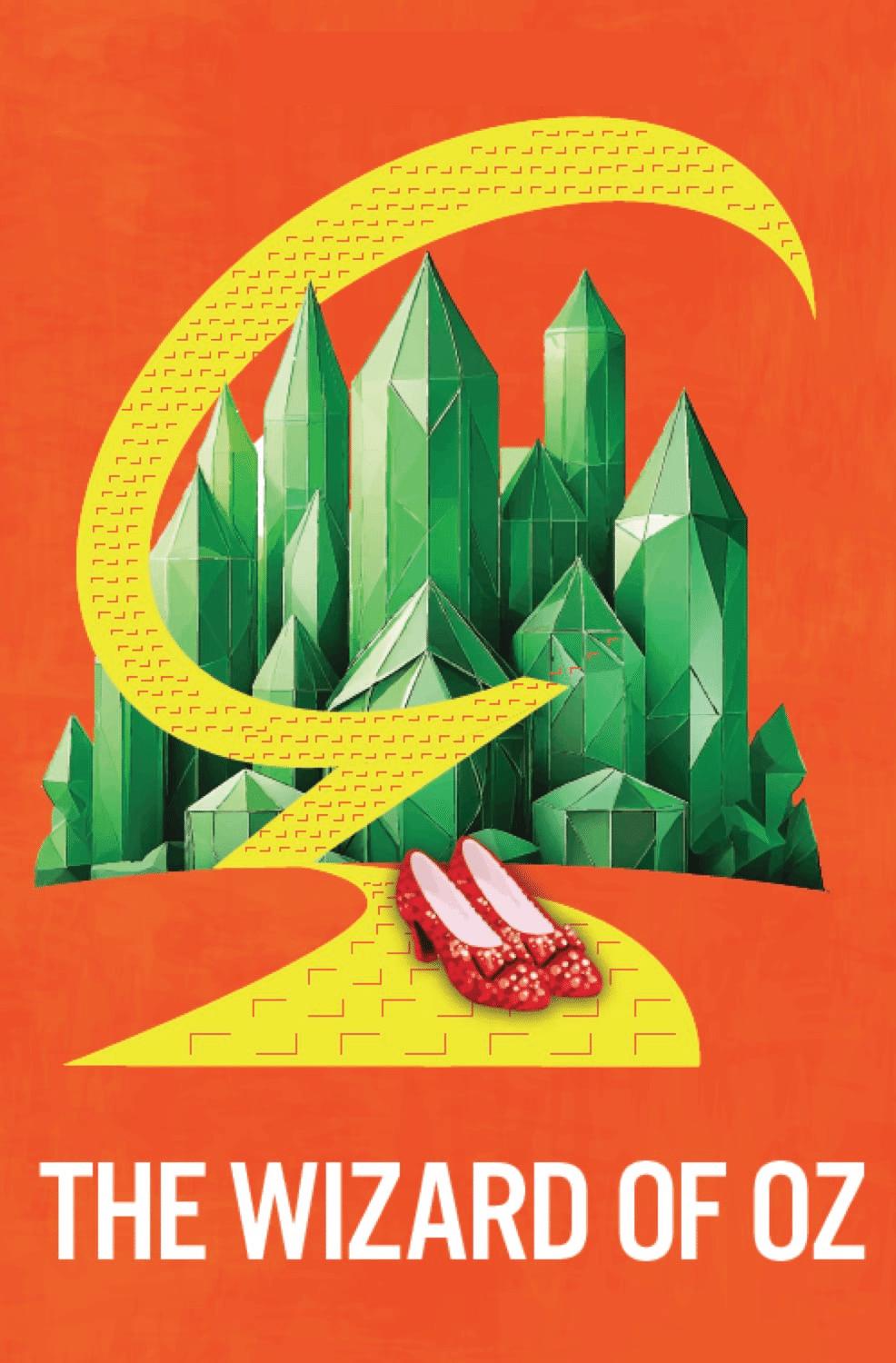


of Your Bladder—and Your Life— with Aquablation
A breakthrough therapy for BPH now offered at Baptist Medical Center East.
Urinary symptoms from an enlarged prostate (BPH) can be frustrating and hard to talk about. But there’s a new solution. Aquablation Therapy is a minimally invasive, robotic procedure that uses a heat-free, high-pressure waterjet to precisely remove excess prostate tissue—with no cutting and no impact on sexual function. This advanced, personalized treatment helps reduce symptoms, restore bladder function, and improve quality of life.
Aquablation is helping men feel like themselves again—with fewer bathroom trips, more control, and better sleep. Find out if it’s right for you at BaptistBladderControl.com or by calling 334-747-7070.
Debbie’s story is one of grit, grace, and grounded purpose. Raised on a 300-acre farm in Pike Road, she spent her childhood immersed in nature, learning independence and imagination that would shape her for life. Horses became a lifelong passion, influencing her values and eventually inspiring a unique hippotherapy program at Easterseals Central Alabama. As a nonprofit leader for over three decades, she’s poured her heart into helping others thrive. But her greatest joy, she says, has been raising her daughter, Lacy—a kind, compassionate young woman now pursuing a degree in social work. Now, as an empty nester and an advocate for aging with purpose, she continues to prioritize health, connection, and service—proving that life’s later chapters can be just as full of energy and meaning as the ones before.
BOOM: You grew up on a 300acre farm in Pike Road, where The Waters neighborhood is now. What was that like, and how has that upbringing shaped who you are today?
Debbie: Growing up as I did, and where I did, was truly amazing. My sister, Sherry, and I had the kind of freedom most kids today can hardly imagine. We spent our childhood on 300 acres of open land—woods, trails, ponds, and pastures that were ours to roam. Although I was technically born in the last year of the baby boomer generation, I identify much more with Gen X. I often joke that we were the "feral kids"—raised with a kind of independence that would probably alarm modern parents. On weekends, friends would stay with us from Friday to Sunday—because back then, Waugh was considered "way out." From the time we got home from school until the sun went down, we were outside. We rode horses, drove the old farm truck when we were barely tall enough to see over the wheel, and spent hours deep in imagination, pretending we were pioneers, runaways, explorers, or whatever story we invented that day. That freedom to explore and pretend
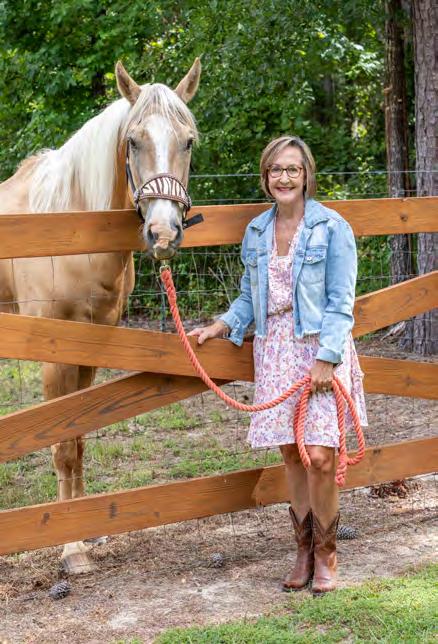
wasn't just fun—it was formative. It taught us how to create our own joy, how to solve problems and get along with others, and how to trust our instincts.
There's a kind of confidence that comes from being turned loose in the woods with nothing but your imagination and your sibling, and knowing your
parents trusted you to find your way home. That childhood shaped me into someone who's comfortable being independent and someone who sees possibility. It taught me how to think creatively, take initiative, and appreciate the simple pleasures and to appreciate contentment in everyday life.
BOOM: Horses have been a thread throughout your life—from riding as a child to trail rides today. What do you love most about that connection with horses?
Debbie: From the time I was little, I felt a special connection to them. It wasn't just about riding—it was about the bond. Horses have this quiet way of teaching you things without saying a word. I think horses teach you a lot of life skills. We learned to take care of them from an early age, such as feeding them, grooming them, and mucking stalls. That alone instills a work ethic most kids today don't learn. You also learn patience, to pay attention, because they pick up on everything—your mood, your energy, even your breathing. I love just spending hours brushing them, just being near them. That connection gave me a sense of peace and confidence. When you're a kid and a thousand-pound animal trusts you enough to follow your lead, that sticks with you. It taught me how to build trust without pushing, how to stay calm when things got tense, and
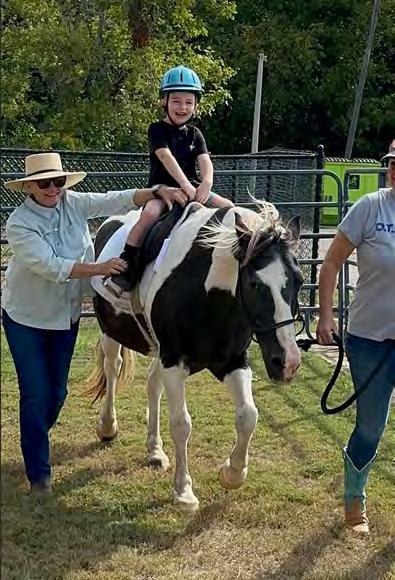
how to be fully present in the moment. Even now, being around horses feels grounding. There's something steady and honest about them. That connection shaped a big part of who I am—it helped me become someone who values quiet strength, patience, and paying attention to the things that aren't always said out loud. That connection motivated me to give that same experience with horses to my daughter. I wanted her to learn those same lessons from horses that I did. Although she doesn't ride very much anymore, it got me back into riding in my forties, and I am so glad that I did. It has given me a fun outlet and activity to do with dear friends. I hope to be like Queen Elizabeth and continue to ride in my 90s.
BOOM: You've even found a way to bring horses into your work at Easterseals. Can you tell us about how that came to be and what role they play in therapy?
Debbie: It has been wonderful being able to offer such a special opportunity to our kids participating in occupational therapy. I was approached by a friend and CEO of Easterseals Alabama, who knew someone who wanted to start a hippotherapy program similar to the program offered by Red Barn in Shelby
County. Her name was Anne Alan Duncan. We met, and the rest is history.
We started the Easterseals hippotherapy program in 2020. Thanks to the Central Alabama Community Foundation, we have completed hundreds of sessions with over 20 kids, and thanks to the Kiwanis Club of Montgomery, for our covered arena located in our parking lot.
I also want to make the distinction that hippotherapy is not a therapeutic riding program. We are not teaching kids how to ride. These kids are meeting their occupational therapy goals utilizing a horse, like you would a balance beam or trampoline. I get chills when I talk about the program and the results we've had with these kids. Many of whom are significantly delayed and/ or have a diagnosis of autism. Some of our kids have accomplished goals for the very first time, sitting on a horse. Some even say their first word, telling the horse to go or to whoa. program is unique to this area, and many of our kids would not have the opportunity to participate in such a program. I tell people all the time that horses are truly magical. This program illustrates just that. Horses have an innate ability to provide immediate reinforcement, which motivates some of our more challenging kids to get great results from hippotherapy.
of college to work on his campaign for a seat on the Supreme Court of Alabama. Not long after winning his campaign, he created a statewide foundation called the Corporate Foundation for Children and hired me to be its first Executive Director. He envisioned it to be a private fundraising arm to the agency that was then called The Children's Trust Fund of Alabama, now the Alabama Department of Child Abuse and Neglect Prevention. I was there 14 years, and we became the largest private donor to the state's child abuse and neglect prevention agency and to its network of grantees.
In 2006, I went to work as the Executive Director for Easterseals Central Alabama, and I have been here for 19 years. Working in a non-profit was not what I had envisioned for myself.
I had originally thought that I would stay in the political realm, but sometimes God has other plans. Working in the non-profit world has never felt like just
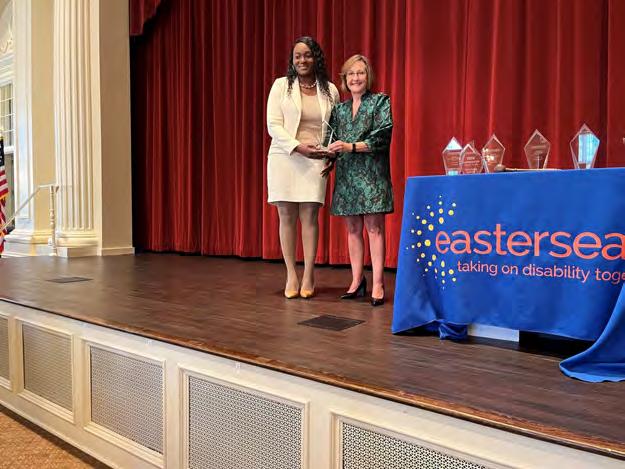
BOOM : You've been in non-profit leadership for 33 years. What drew you to that world, and what keeps you passionate about it?
Debbie: I have to give credit to a very close friend of mine, Judge Mark Kennedy, who was married to my first cousin and who sadly passed away last year. He hired me right out
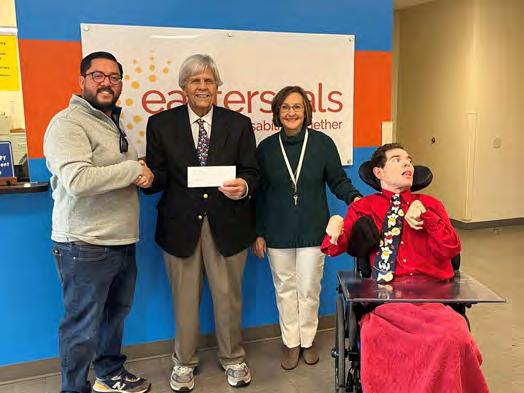
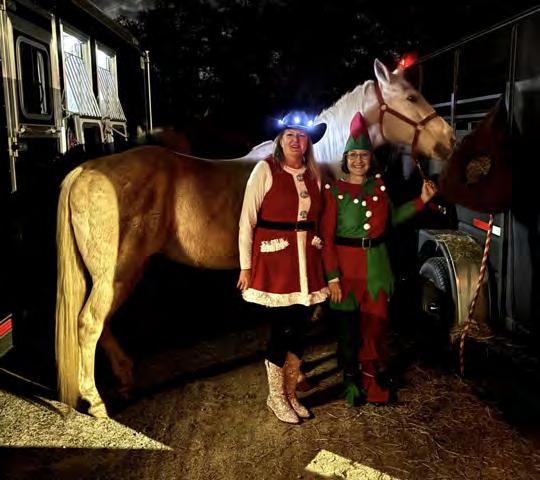
a job to me. There's something deeply fulfilling about knowing your time and energy are going toward helping people, strengthening communities, and trying to make the world a little better. What drives me most is the chance to be part of something bigger than myself. In non-profit work, you get to see the direct impact of your efforts— whether it's helping someone find stability, creating opportunities where there were none, or simply showing people that they matter. It's not always easy with resources being very limited, and the needs can feel overwhelming. With that said, I wouldn't trade it. I have been privileged to meet some of the best people I know working in nonprofit, and I am in awe of their selfless compassion.
BOOM: You've served as Executive Director at Easterseals Central Alabama for nearly two decades. What's something people might not realize about the scope and impact of the services you offer?
Debbie: I think people are always amazed that we do as many programs as we do. We offer eleven programs serving individuals across the life span. We are a leading provider of services to children with autism, offering both speech therapy and pediatric occupational therapy. These programs include specialized programs like food school and hippotherapy. We serve hundreds
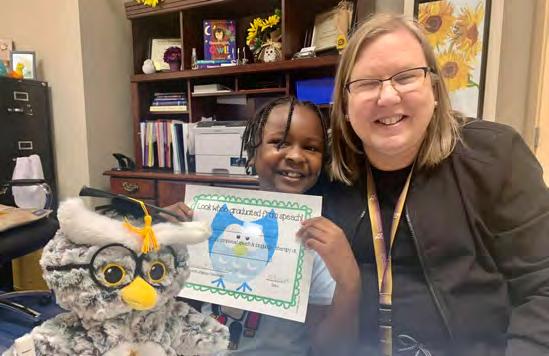
of children a year, many of whom achieve positive outcomes from their intervention with us.
We also serve adults with disabilities who are interested in entering the workforce. This includes working with high school students, providing them with opportunities to explore careers and the world of work.
People with disabilities have been told all of their lives what they can't do. Easterseals offers an array of programs that help them see what they can do. We also offer other programs like ASL interpreting, learning disabilities evaluation, a senior adult job training program, and a durable medical equipment re-use program. Last year, we served over 2000 people across all programs, primarily from the River Region. Easterseals is a program that builds skills for achieving independence and self-reliance. It offers hope and real solutions. We meet people where they are and help them get where they want to be through personalized support, compassion, and programs that create lasting change.
BOOM: Easterseals serves both pediatric and adult clients, which is unique. How has that shaped your mission as a leader?
as a team. We're not just focused on only one stage of life—we get to look at the big picture. It helps us think about how to support someone not just for today, but for the long run.
Because we see people at so many different points in life, we understand how needs can change over time. That helps us build programs that make sense and really last. Whether it's helping a child learn to communicate or helping a senior feel independent and valued, we get to be part of their story. That's what guides my work as a leader, making sure we're thinking ahead, supporting the whole person, and walking with them through every season.

with daughter, Lacy.
Debbie: What makes Easterseals so special is that we get to work with people of all ages, from babies to older adults. That really changes how we think
BOOM: As a long-time single mom, what was it like to raise your daughter on your own, and now to step into the new chapter of being an empty nester?
Debbie: Raising my daughter, Lacy, has been my greatest joy. It was difficult at times, but it has been such a blessing. Following my divorce and the death of Lacy's dad, I could not have done it without family to help. My mom and my youngest, Lori, were incredibly supportive.
I'm proud to say that my daughter is truly one of the best people I know. Watching her grow into a young woman who is not only incredibly talented but also deeply kind and compassionate has been nothing short of inspiring. She's always had a strong sense of loyalty—whether it's to her family, friends, or those who are struggling. She shows up fully for the people she cares about, and that unwavering loyalty is part of what makes her so special. I've always taught my daughter that education is a powerful tool for women, not just for career success, but for self-reliance.

awe of the woman she's becoming and excited to see how she uses her gifts to serve the world.
BOOM: How did becoming a mother later in life influence your perspective and priorities?
Debbie: I wish I could say that being older made me wiser than younger mothers – it didn't. I think much like most parents, I felt like I was getting through each day on "wing and a prayer."
Stepping into a new season of motherhood at my age feels like good timing. At this stage of life, your perspective does shift. You've lived enough, grown through enough, and let go of enough to start embracing life in a different way. You're more grounded, more self-aware, and certainly far less concerned with what others think.
There's a freedom that comes with age. I think you stop being anxious over trying to be perfect and start focusing on what is meaningful.
You start to make space for yourself again, your interests, your health, your friendships, your joy.
It's not an ending, but a beginning of a new chapter where you get to keep growing, learning, and showing up in a way that feels true to who you are now.
BOOM: You've made health and fitness a priority, working out regularly since 2018. What inspired that change, and how has it impacted you physically and mentally?
Debbie: Back in 2018, I realized I wasn't feeling like myself. I was overweight, tired, and starting to really feel it, especially in my feet. I developed plantar fasciitis, and every step was a reminder that something needed to change. At the same time, my mother was facing some serious health challenges, and watching what she was going through was a wakeup call. I didn't want to head down the same path if I could help it.
So I made the decision to start moving more and paying attention to what I was eating. I began exercising regularly and shifted to a high-protein diet that supports my energy and strength. I don't count every calorie or track every macro, but I do keep an eye on what I eat to make sure I'm getting enough protein and carbs to fuel my body.
While I hope she finds a partner who can provide well and support her choice to be a stay-at-home mom, if that's what she wants, I also want her to know she can stand on her own if she ever needs to. Education gives her options, independence, and the confidence to shape her own path, no matter what life brings.
She's currently pursuing a degree in social work, with the goal of becoming a therapeutic social worker one day. Her heart is set on helping others through their most difficult moments, and I know she'll make a difference because she leads with empathy, strength, and sincerity.
Now, as I step into this new season as an empty nester, it's a mix of emotions. There's sadness, of course, in the quiet house and the changed routines. I may miss having her under my roof, but I'm in
This season is about reconnecting with people and things you didn't have time for while raising children. It's also about watching your child step into their own life while rediscovering who you are outside of being a full-time parent.
Now, I feel better than I have in years. I have more energy, I'm stronger, and I recover more quickly. It's not just about the physical changes—it's also been a huge boost mentally. I feel more confident, more focused, and more in control of how I take care of myself.


Being consistent has made all the difference, and I'm proud of how far I've come.
BOOM: You've got some strong friend circles. How important has community been in your personal wellness journey?
Debbie: I feel really blessed to have such a strong circle of friends in my life. Some I've known since high school, others I met in college, some through being a parent, and others through my work. Each group has been part of my wellness journey in different ways. When life gets hard, they're the ones I can talk to, laugh with, or just sit in silence and feel understood. They remind me I'm not alone, and that kind of support is so important. Good friends help you stay grounded, encouraged, and connected—especially during the ups and downs of life.
BOOM: What's one piece of advice you'd give to someone in their 50s or 60s looking to rediscover purpose, passion, or health?
Debbie: If you're in your 50s or 60s, here's the best advice I can give: don't take yourself too seriously. Laugh—especially at yourself. Life feels less stressful when you can find the humor in it all. Find your people. Good friend groups matter more than ever. Surround yourself with people who cheer you on, tell you the truth, and make you laugh until you cry. Keep doing what you love, even if you're not the best at it. Dance, paint, travel, ride horses—whatever lights you up. And for the love of all things, stop saying you're too old. That phrase will cheat you
out of some of the best experiences waiting around the corner. Your energy might change, your knees might hurt—but your purpose, your joy, and your sense of fun don't have an expiration date.
BOOM: When you're not working or riding, what's your favorite way to relax and recharge?
Debbie: Spending time with family and friends is my favorite way to unwind. This fall, I'm especially looking forward to a cruise to Alaska with my sister and two of my first cousins—we've been planning it for a while, and I can't wait. I also love to read and try to carve out time for it whenever I can. A good book, some quiet time, and good company— that's my kind of recharge.
BOOM: What do you love most about living in Pine Level and the greater River Region?
Debbie: Having grown up in Pike Road, I wanted to get back to living in a small community. Although it is not exactly the same, it still feels quiet and peaceful. I've come to realize that feeling at home isn't just about having a lot of space. It's about knowing the people around you and feeling connected. When I moved here, I hadn't had my daughter yet, but I knew I wanted to raise any future children in a place where they could grow up with a strong sense of community. I pictured my children going to school with the same kids they'd see at church, forming friendships that would last, and being surrounded by familiar faces who cared about them. Even though the pace is a little different now, the things that matter most like community, relationships, and enjoying the simple things are still very much the same.
Debbie: Of course, my greatest accomplishment is my daughter. She is becoming exactly who God wants her to be, and that is wonderful to see. Professionally, I believe that the story is still incomplete. Professionally, I hope one day to leave behind an organization that's not only strong today but positioned for tomorrow. We've worked hard to build sustainability both in mission and in resources. I'm proud that we've created a financial reserve that will help ensure that Easterseals Central Alabama continues serving people with disabilities for another 65 years and beyond. Knowing that the work will carry on, long after I step away, is one of the greatest rewards of my career.
BOOM: What does "aging with purpose" mean to you at this stage of life?
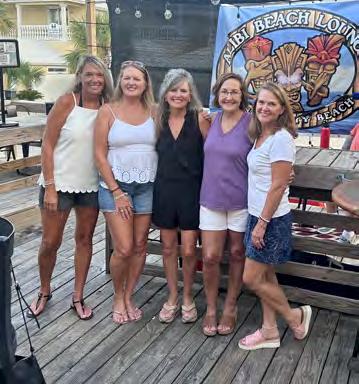
Debbie: Aging with purpose means living each stage of life with intention, connection, and meaning. It's not about slowing down but about choosing what matters most and staying engaged in ways that keep your mind, body, and spirit strong. It means nurturing relationships with people who lift you up. It means doing work, whether paid or volunteer, that gives you a sense of contribution. It's finding time for movement, prayer, laughter, and rest. It's knowing that your value doesn't fade with age. It deepens.


Aging with purpose is about showing up for your life and not just going through the motions. It's staying curious, staying kind, and staying true to who you are, while making room for growth and joy in every season.
BOOM: Looking back, what are you most proud of — both personally and professionally?
We want to thank Debbie for sharing her story with us this month. If you have comments or suggestions about our cover profiles, including nominating someone, please text Jason Watson at 334.328.5189 or email jason@ riverregionboom.com.


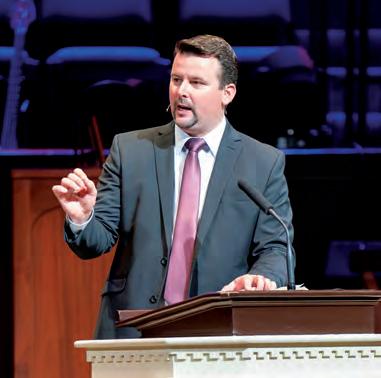
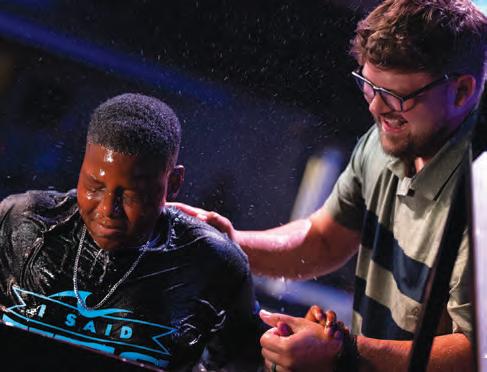



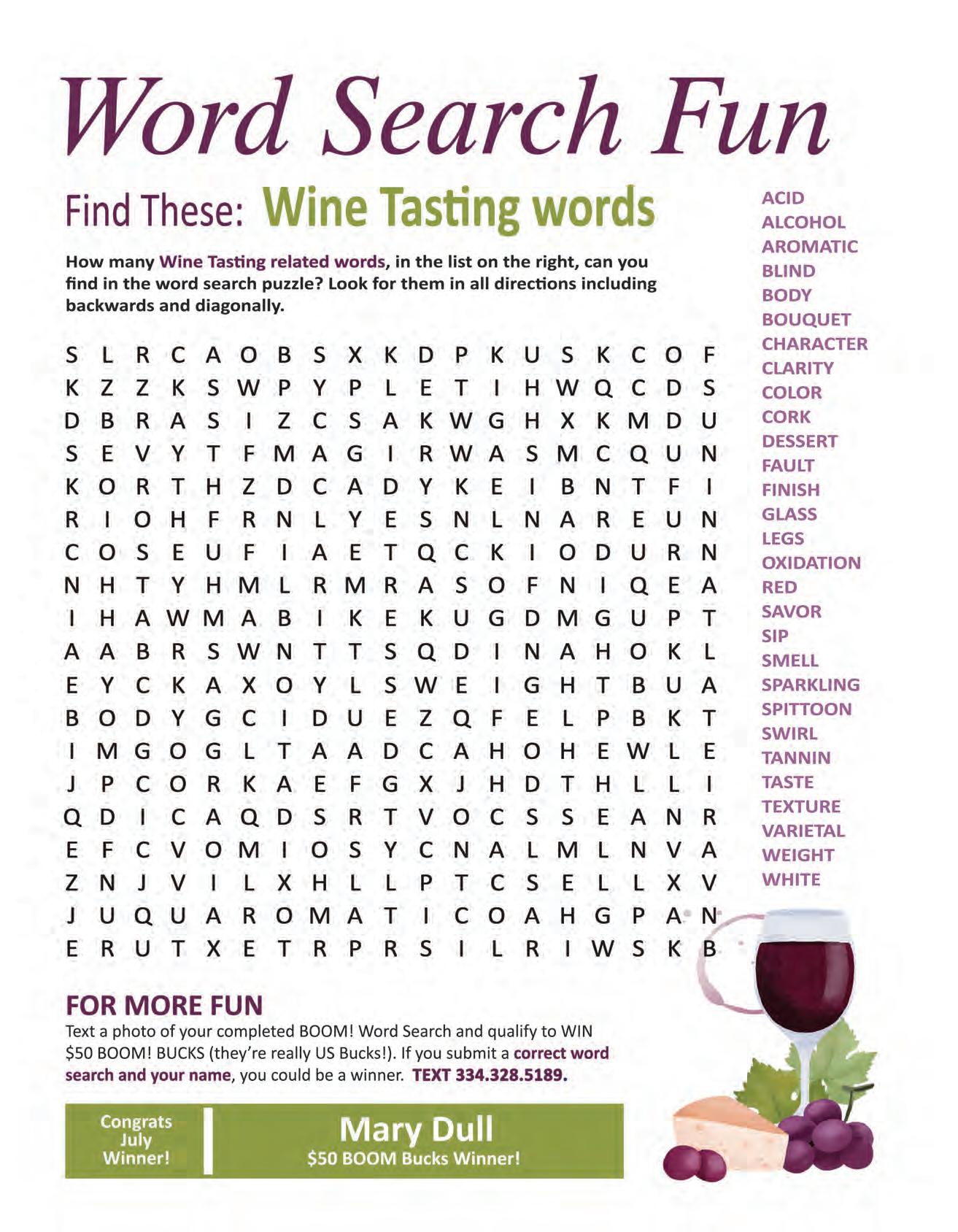















You may find yourself grieving the loss of shared memories, the loss of conversation, humor, connection—even the loss of being seen. It’s disorienting to be in the room with your husband or mother and yet feel so incredibly alone.
There’s no “right” way to grieve this kind of loss. Some days you’ll feel strong and capable. Other days you may fall apart just trying to put the car keys away. That’s okay. Grief is not linear. It loops and spirals and often hits hardest when you least expect it.
Being forgotten by someone you love hits at your core. You may feel invisible, unwanted, or somehow erased. You may even question your own value: If they don’t know me, do I still matter to them? Did we matter?
These are valid questions. And painful ones.
The truth is, you do still matter. What you shared with them—those years of laughter, sacrifice, meals, vacations, holidays, arguments, and late-night talks—they are not lost, even if the other person can no longer recall them. Those moments are woven into the fabric of your life. And theirs, too, even if they can no longer access them.

Your presence still brings comfort. Even if your name doesn’t register, your kindness, tone of voice, or gentle touch might still soothe them. On some deeper level, your essence may still reach them, even when your identity does not.
Honoring the Relationship That Was
When your spouse or parent no longer recognizes you, it’s tempting to focus only on what’s been lost. But one way to care for your soul is to remember, honor, and even celebrate the relationship you had.
Make space for your memories. Pull out old photos. Write down stories. Tell friends or children about the time your dad danced barefoot in the backyard, or how your spouse used to leave love notes in your lunch box.
Grieving what is doesn’t mean forgetting what was. It means holding space for both the joy and the sorrow— acknowledging that your love is real, even if it can no longer be returned in the same way.
One of the cruelest parts of caregiving is the pressure you may put on yourself. You might feel like you should be more patient, more cheerful, more everything. But caring for someone who
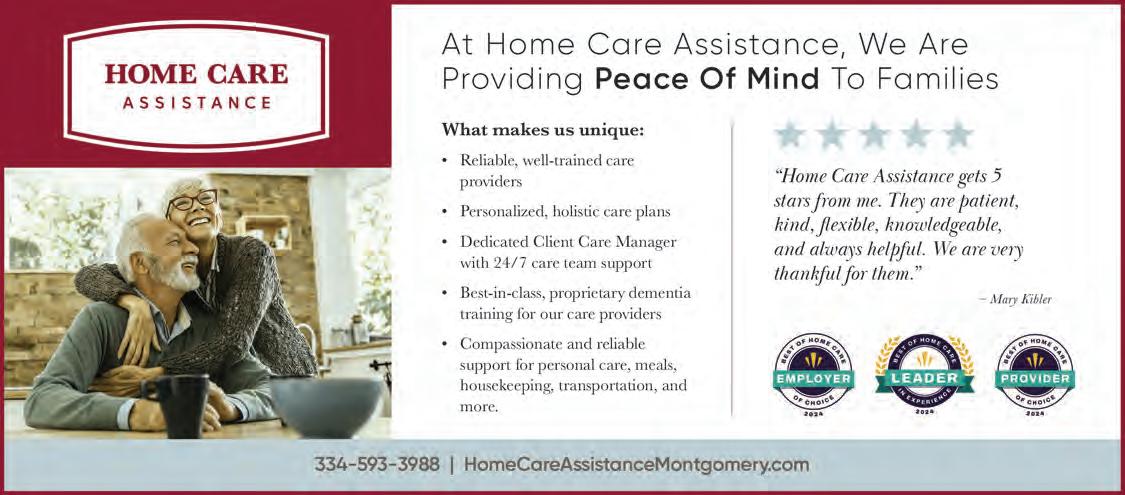
no longer recognizes you is emotionally exhausting, and you are allowed to feel overwhelmed.
You may feel guilty for wanting space, for resenting your role, or for secretly missing who you used to be before all of this. These feelings are normal. They do not make you selfish—they make you human.
Let go of perfection. You’re not a machine. You’re a person doing something incredibly hard. Some days will be better than others. The goal is not to be unbreakable. The goal is to survive without losing yourself in the process.
When your parent or partner forgets who you are, it becomes even more important that you don’t forget who you are.
Caregiving can easily consume your identity. You may find yourself becoming only “the daughter” or “the spouse” or “the caretaker,” especially if others around you don’t see the toll it takes. But you are still more than this role. You are still a friend, a creative soul, a dreamer, a human being with passions, desires, and needs.
Protecting your identity means doing small, consistent things that remind you of who you are beyond this moment. Maybe it’s keeping up your morning run, or baking on Saturdays, or listening to the music you love on your commute. Maybe it’s attending your book club even if you feel tired, because it reminds you that you’re not invisible.
Don’t stop being you.
Caring for someone who doesn’t recognize you is a unique kind of emotional labor. That means you need a support plan too. Not just a to-do list for their medication, meals, and doctor visits—but for your mental health, your body, and your spirit.
Here are a few ways to intentionally care for yourself:
• Seek professional support. A counselor who specializes in grief, caregiving, or dementia-related loss can help you process your emotions and stay grounded.
• Build a small support team. Whether it’s friends, siblings, church members, or a local caregiver group, surround yourself with people who can handle hearing your truth.
• Schedule breaks—and keep them. Whether it’s an afternoon away, a massage, or just a quiet cup of coffee outside, guilt-free rest is essential. You’re not abandoning your loved one. You’re preserving your ability to keep showing up.
• Practice small rituals of restoration. Light a candle. Pray. Journal. Stretch. Take five deep breaths in your car. These little moments can become lifelines.
Remember, resilience requires recovery. You cannot pour from an empty cup.
When someone doesn’t recognize you, your interactions change. Conversations may no longer make sense. The logic you once relied on is gone. They may ask the same questions over and over, or mistake you for someone else. They may even get agitated or afraid in your presence.
These moments are painful—but they are not personal. The brain is not the soul, and the illness is not the person.
Try to meet them where they are instead of forcing them to meet you where they were. If your dad thinks you’re his sister, and that brings him comfort, you don’t have to correct him every time. If your spouse refers to you as a stranger but still responds to your voice with calmness, lean into what works.
This doesn’t mean you’re letting go of your identity—it means you’re learning to speak their new language, one rooted in emotion more than facts.
It’s hard to see purpose in pain, especially when you feel unseen by the one person you’ve spent your life loving. But even in this storm, your love matters. Every moment of care, every act of tenderness, every sacrifice—you are bearing witness to love at its most unconditional.
Sometimes the most profound love is quiet. It doesn’t show up in shared laughter or “I love you’s” anymore. It shows up in helping them to the bathroom. In brushing their hair. In sitting beside them as they nap. In offering gentleness to a soul that can no longer name you.
These moments matter. They are holy in their own way.
You are walking a sacred and excruciating path. But you are not walking it alone. Millions of people are caring for loved ones with dementia, Alzheimer’s, or other forms of memory loss. There is a whole community out there of people who understand what it’s like to be forgotten—and to keep loving anyway.
Reach out. Share your story. Join a support group, online or in person. Let others carry part of the weight with you.
Because you’re still here. And you still matter.
Give yourself grace. Give yourself rest. And above all, give yourself permission to feel it all—the grief, the love, the loss, the confusion, the hope.
Even if they don’t know who you are anymore, you do. And that’s a light worth tending.


My heart was thumping heavily, and my petite frame was full of anxiety. I fretfully watched my Baby Tree forcefully dance the jitterbug from the furious winds of the season. Pressed firmly into the glass patio door, my childlike button nose and chubby porcelain cheeks were an unrecognizable blob. This particular spring, I spent many of my days positioned here. I was only six and not yet old enough to understand the overwhelming feelings keeping me glued in place, but simply put, I was in love. It was April, and one week prior, several spring storms had crashed through our neighborhood, leaving behind scattered evidence of their brief visit. I knew the broken branches that had
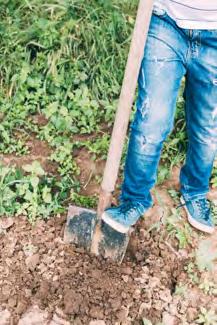
fallen from the tree would die and must be in the ground if they had any chance of surviving. So, my little muscles worked hard to shove one end of a very long and skinny branch into the dirt. Observing my struggle, my grandfather, Papa, offered his help, and together we dug a hole about a foot deep and staked the remaining branch up, which still stood about five feet above the ground. I wanted nothing more than my Baby Tree to be healthy and grow to a mammoth size with giant branches thickly covered in leaves of green.
Fast forward twenty years, and my Baby Tree, now named “Missy’s Tree”, vastly towers over the entire yard, far

surpassing my wishful visions as a child. This beautiful tree provided our family with numerous days of peaceful shade where we all joyously gathered time and time again. When planted twenty years ago, no one had any knowledge of the destruction this tall beauty would cause. Unexpectedly, its massive root system naturally rose to the surface of the earth in search of water, and in doing so, the roots completely destroyed my grandparents’ beautiful backyard patio. Experience has taught me that to avoid unwanted and unforeseen damage in your yard or garden, always research what the mature growth size will be of anything you plant. A seedling’s natural growth should not and simply cannot be limited to its manmade surroundings.


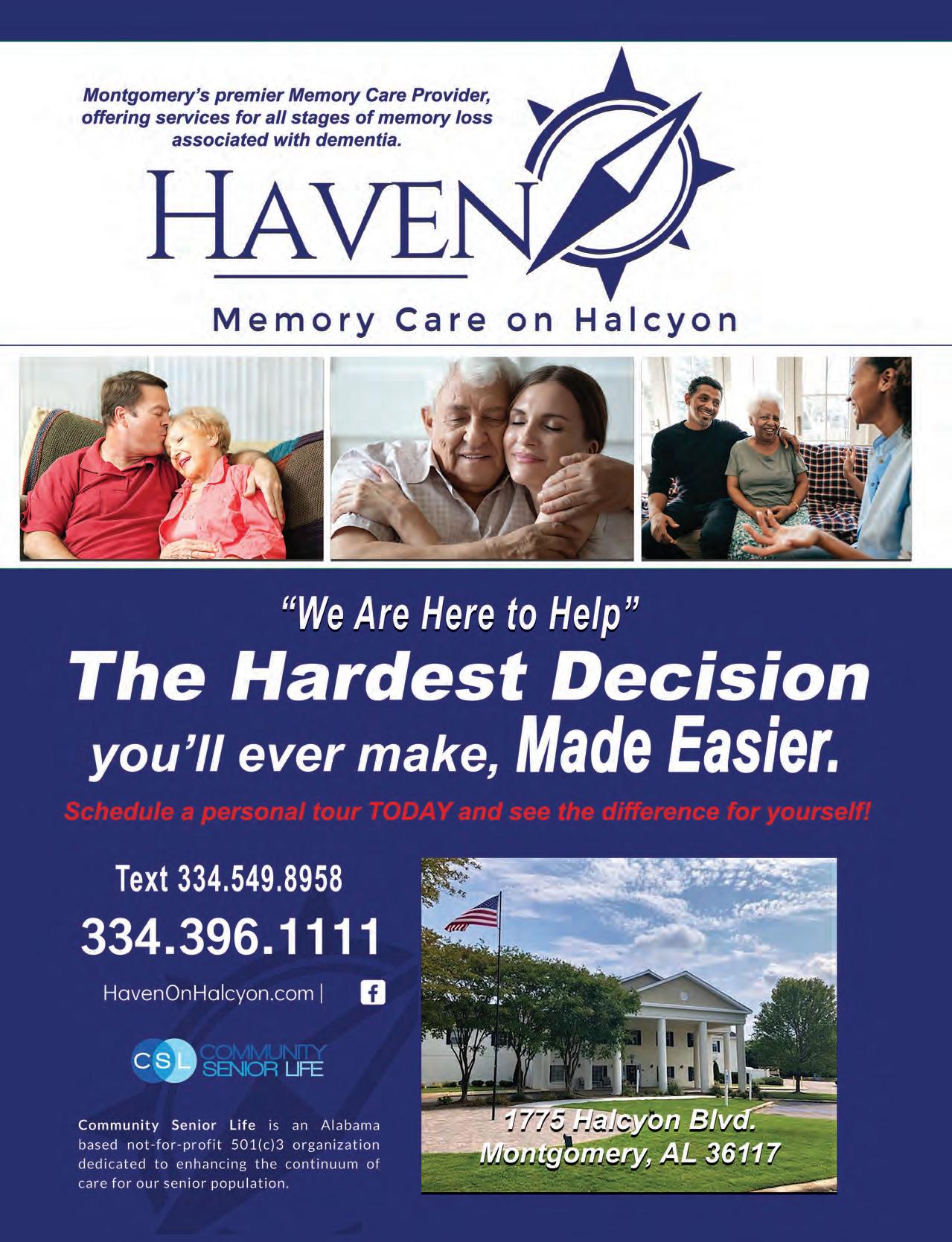

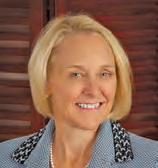
Susan Clayton Moore, J.D., is a financial advisor and wealth manager of Moore Wealth Management, Inc., with offices Montgomery and Alexander City, AL. Susan has over $150 million in assets (as of 9.1.24) under management through Kestra Financial and has been a financial planner for over 40 years. Contact Susan at 256.234.2761. Email contact is susan@moorewealthmanagement.com.
The opinions expressed in this commentary are those of the author and may not necessarily reflect those held by Kestra Investment Services, LLC or Kestra Advisory Services, LLC. This is for general information only and is not intended to provide specific investment advice or recommendations for any individual. It is suggested that you consult your financial professional, attorney or tax advisor regarding your individual situation. Securities offered through Kestra Investment Services, LLC (Kestra IS), member FINRA/SIPC. Investment Advisory Services offered through Kestra Advisory Services, LLC (Kestra AS), an affiliate of Kestra IS. Kestra IS or Kestra AS are not affiliated with Moore Wealth Management, Inc. https://www.kestrafinancial.com/disclosures
